Joe Biden firmly declared on 60 Minutes that the Covid pandemic is over.
As you would expect, those in Public Health did not all quietly agree with this.
When Bob Wachter says it is a judgment call whether the pandemic is over, you know the pandemic is over.
When Caitlin Rivers says ‘yes and no,’ and the details she lists are far more yes than no, you know the pandemic is over.
When Celine Gounder responds by saying that calling the pandemic over is Just Awful and means we are awful people violating sacred values and must Do More, you still know the pandemic is over. She points to some other similar quotes here. It similarly does not seem over to Tatiana Prowell.
More generally, with various Public Health voices chiming in.
Experts agreed it was not yet time to call the pandemic over, but some suggested acknowledging we have entered a new phase of the pandemic.
Experts, huh.
"I worry that premature declarations like this, especially from the U.S. president, can also influence other HIC (high-income country) leaders to follow suit and pump the brakes on response efforts. COVID-19 has affected the most vulnerable communities first, including women and girls, people of color, and low-income communities — statements like this give false hope to policymakers and leaders that COVID-19 is no longer a threat, and it's these marginalized communities that once again will feel the brunt of rising cases again," Lal said.
And while the progress against COVID-19 should be celebrated, Lal said, "We should all be clear eyed about the reality we face — COVID-19 remains a threat to our communities and we need more, not less, political will to bring it under control."
We must Do More. Beyond that, we must Do More Than Ever. We must Bring It Under Control, for values of under control that are physically impossible and absolutely never going to happen even if such people get their way.
So, yeah. Pandemic over.
That does not mean there is not a Public Emergency. There is very much still a Public Emergency because there must always be a Public Emergency. How else would we transfer hundreds of billions of dollars to favored groups without the approval of Congress?
Still, pandemic over. When the Public Emergency expires, the search will be on for the new emergency.
On that note, and given several people asked about it, let us welcome the latest variant, BA.2.75.2, with its own section. For now I am not especially worried.
Executive Summary
President declares pandemic over!
Russia mobilizes, there is a Ukraine post.
Head Start kids freed from mask and vaccine mandates.
Let's run the numbers.
The Numbers
Predictions
Prediction from last week: 350k cases (-10%) and 2,625 deaths (-9%).
Results: 355k cases (-9%) and 2,813 deaths (-2%).
Prediction for next week: 330k cases (-9%) and 2,600 deaths (-8%).
Death number was disappointing, still within data measurement parameters. Cases continue to steadily drop and should continue to do so until we get into winter or an important new variant arises.
Deaths
Cases
BA.2.75.2
As always, when one first hears about a variant, there is still plenty of time.
As always, if there is something worth doing with that time? Then we 100%, absolutely will not be doing that.
In particular, we will not update the vaccine until well after everyone has already been infected with the new strain. If everyone doesn’t get infected with the new strain, then why are we bothering to update? Updates are only allowed when they are too late. Then they are mandatory. But only for the booster. You still need to get the old shot first, then we can boost you with the new one.
The alert for BA.2.75.2 came from two sources: This thread by Ben Murrell, and the statement by Marginal Revolution that ‘there is a new variant of concern’ which linked to a Twitter search for the term BA.2.75.2.
The core claim is that BA.2.75.2 can immune escape from BA.5.
Link to the preprint here. Here’s the abstract since the thread doesn’t effectively duplicate it:
Several sublineages of omicron have emerged with additional mutations that may afford further antibody evasion. Here, we characterise the sensitivity of emerging omicron sublineages BA.2.75.2, BA.4.6, and BA.2.10.4 to antibody-mediated neutralisation, and identify extensive escape by BA.2.75.2. BA.2.75.2 was resistant to neutralisation by Evusheld (tixagevimab + cilgavimab), but remained sensitive to bebtelovimab. In recent serum samples from blood donors in Stockholm, Sweden, BA.2.75.2 was neutralised, on average, five-fold less potently than BA.5, representing the most neutralisation resistant variant evaluated to date. These data raise concerns that BA.2.75.2 may effectively evade humoral immunity in the population.
As usual, a five-fold less potency matters but it matters far less than it sounds like it would matter. Orders of magnitude are the order of the day here.
Evusheld being completely gone is unfortunate, hopefully it can be updated.
Chise expects the booster to still be effective against all circulating strains.
Thread from two weeks ago by Tom Peacock talking about what is likely next for various variants, citing BA.2.75 sublineages as likely, BA.2.75.2 as plausibly taking over without necessarily causing a wave, and BQ.1.1, a descendant of BA.5, as showing quick growth. Given lack of additional talk about BQ.1.1 since then it’s probably fine.
Bloom Lab here analyses a study by Yunlong Richard Cao on the convergent evolution of Omicron.
My read of these developments is that they are surprisingly good news. Convergent evolution means that there is a kind of platonic form of the maximally infectious Omicron subvariant, and we more or less know what it would look like. It does not seem it would be deadlier. Once it is done becoming that, getting to the next problem beyond that is going to potentially take a lot longer - we are in some sense nearing the end of this leg of the journey, after which we hopefully can rest.
Will some one of these variants cause a winter wave? Entirely possible. If that does happen, serious mitigation efforts at the very peak of the curve might make sense for individuals, perhaps a bit more for the most vulnerable. Anything widespread that lasts more than 1-2 weeks will be a mistake. As would anything that is mandated from above.
Am I marginally more concerned because this particular variant exists than I would be if it did not? Yes, it has crossed that threshold for now. A lot of variants cross that threshold for a short time. However I do not think it much rises above the general noise of various potentially scary mutations at this time. I will continue to look out for it.
Physical World Modeling
Yes, new booster is strictly better than old booster.
BA.1 infections did not induce significant cross immunity against BA.4 and BA.5, but BA.2 infections did, says new Science paper.
If you want the new updated Omicron booster, you need to first get the original vaccine. That’s right. First, you would need to get the obsolete worse vaccine for your original shots, only then could you get an Omicron ‘booster.’ Pure idiocy.
If we wanted unlimited options, Prasad explained, we wouldn’t have an FDA at all. “You can just have a free market where you can have whatever choice you want,” he said.
Yes. Yes, you can.
We should worry about pharma companies capturing the FDA to prevent others from getting approvals. If pharma companies captured the FDA to get them to approve things? I can live with that. We even ran a test of this recently by approving an Alzheimer’s drug that Everybody Knows does not work. The system quite reasonably responded by refusing to pay for it, and things seem fine.
‘Exhausting the immune system’ is Not a Thing.
58% of American adults say they intend to get annual boosters. I’ll take the under.
New Long Covid ‘study’ finds correlation between Covid-19 and a future Alzheimer’s diagnosis and I trust my readers to figure out why correlation is very much not causation on this one. At this point, yelling about correlations is irresponsible even if it’s not technically wrong.
Statistically speaking, absent a singularity it is true that by lowering lifetime incomes and education levels, closing schools shortened lives.
Scott Aaronson’s experience with Covid (from September 4, only saw it this week). This was not that similar to my experience. If I was experiencing what Scott experienced, I would have tested.
Bob Wachter is ready to dine indoors.
Seems implausible that Covid would decline locally 64% in two weeks. What is different about San Francisco recently?
I have seen many people attempt similar complicated calculations, where there are a lot of steps with high uncertainty.
What I still don’t remember anyone else doing is starting with the most useful piece of information we have - that we have a reasonable estimate of how many people have Covid at any given time - and then try to measure risk relative to what the average person is doing. I decided not to walk through the whole calculation here, and stick to the basic heuristic. Given Americans indoor dine something like five times a week, Bob’s estimate would imply getting Covid 5% of the time within a week, which accounts for roughly all of the Covid infections that caused that risk in the first place. That doesn’t seem plausible.
Bloom Lab has new biophysical model of viral escape.
Now that pandemic is officially over, Starbucks ending its Covid-19 sick pay rules. Not giving your employees paid time off for vaccine side effects does not seem like a wise long term plan. Not giving them paid time off for being sick, with Covid-19 or otherwise, does not seem a wise way to run a coffee shop.
I appreciate support, but I place a super high importance on not putting any of my content behind a paywall.
Latest have-you-looked-out-a-window-level Obvious Nonsense claim on Long Covid, with Buzzfeed claiming one in five people who got Covid (as usual, read at least half the country) have debilitating Long Covid. And a substantial number of comments saying ‘yes, that is accurate.’
I Lose a Bet
A while back as Omicron was ramping up, I bet $60 against Holden’s $40 that the bulk of cases this year would be in the first few months, with the bet resolving ambiguously if there were new cases later but they were not Omicron. This was a tricky bet to nail down. The central thesis that there would be a giant Omicron wave and then things would get better was something we mostly agreed about, so the bet was about confidence and magnitude and there wasn’t that much disagreement - I was at 70% I would win conditional on non-ambiguous, Holden was at 50%. We made it happen because we both believe in the Virtue of Betting, and I am not trying to pull a Bryan Caplan style ‘only bet against people when you have huge edge’ strategy.
There can be no question that I lost the bet, and the Metaculus market on this agrees. The ‘will this be judged ambiguous?’ question on Metaculus disagrees. This is presumably on the question of ‘are new subvariants of Omicron still considered Omicron?’ If the new sub-variants did not count for the wager, it would resolve as a push. Unfortunately for me, I think the answer is obviously yes, they are subvariants of Omicron. That means they count - to not count they would have to be called Pi, or at least I would have to think they deserved to be called Pi, which these don’t.
I have paid.
In hindsight, the question of ‘what counts as Omicron’ does have a strong bearing on who had the right side of this wager, and also is a key insight into the mistake that I made here. I did not give enough consideration to exactly the scenario that happened, that sub-variations would keep Omicron going long after the initial wave, and that they would still be Omicron so I would lose. There were no substantial such Alpha or Delta variants, and I did not stop to consider how different Omicron was genetically and thus how much more likely it was that there would be important new sub-variants.
Thus, I assumed that scenarios like this one would be pushes. That was my mistake, and so I deserve this L. In the absence of such sub-variants, would I be on track to win? I do not know. I do think I had the ‘right side’ if such sub-variants caused a push, but that is not what we agreed to. And that is how betting works.
In Other News
Federal judge permanently blocks Biden administration’s mask and vaccine mandates for Head Start programs. Yes, this required a judge, they did not do this on their own.
CDC anticipates a recommendation for bivalent boosters in kids ages 5-11 in early to mid-October.
It seems like the description is very clear that this was an underpowered result and nothing definitive was learned. The question now becomes, can we handle the truth? Or is it impossible to share such information without people overreacting?
It is impressive how reliably the worst possible framing can be placed upon things by those advocating for them, here the White House Chief of Staff.
Reminder that pretending uncertainty doesn’t exist might bite you in the ass. Then again, it might not, we can’t say for sure.
China quarantine bus taking people away in the middle of the night crashes, killing 27. Seems to be catching on as a symbol of the zero Covid policy and its consequences. Seems China will stay the course on zero Covid until it gets its mRNA jabs, so well into next year at a minimum.
I have not actually heard the argument in question, so no idea how common this is:
Ezra Klein asks why we haven’t had a new Operation Warp Speed from the Biden administration. The answer is that the Biden administration is against warp speed. They are deeply committed to following the proper rules and procedures and the Science™ and is not about to break the one about not going faster than the speed of light, and if they did they certainly wouldn’t let anyone risk the fabric of space by going faster than Warp 5.
The Lancelot Commission has come out with its report on the pandemic. Origins of Covid are considered uncertain. Failures are blamed on lack of public trust and cooperation with prevention and mitigation measures, and lack of moving sufficiently quickly, while summary does not consider the many failures to deserve public trust and cooperation.
Report is not kind to the WHO. Consider this passage:
Yet their recommendations are for WHO to be strengthened and given a substantially larger core budget. It calls for universal health coverage and to Do More for Public Health generally. For good measure, it calls upon better funding for the Paris Climate Agreement and Sustainable Development Goals (capitalization is theirs).
Whereas the recommendations do not seem to call for much soul searching into how such grievous errors were made or how to prevent them in the future, on this or any other fronts.
The WHO responded and claimed they actually did a good job.
So I am going to leave this here.
Needless to say, we should not respond to this by increasing the WHO’s powers and budget, and especially should not do that while not fixing the procedures involved.
I made an executive decision not to read the full report, as I do not expect to learn much. Readers can let me know if there is anything important that I missed.
Monkeypox
FiveThirtyEight analyzes what went right with Monkeypox.
Their headline thanks Public Health.
The body of the article makes it clear Public Health was mostly irrelevant.
What happened was that the communities impacted reduced their rate of risky activities, and this effect was far, far larger than vaccination and other official Public Health efforts. They helped, to be sure. It is good that we did them and we should have done more by being more competent. What mattered and gets the credit, however, as simple: Telling people affected what put them at risk, after which they quite rationally adjusted.
Vaccination campaigns have also been important, but the behavioral changes seem to be more widespread in the high-risk community than vaccination has been, Varma said. “The original guidance from the CDC has been refreshingly frank and honest and transparent about what are the behaviors that put people at highest risk and what are the ways in which you can minimize your risk, without questioning whether sex is an essential activity to life,” he said.
Public Health had what might be called a mixed record on the front that mattered most, with various advocates arguing whether to give people necessary health information or to hide it to avoid potential stigmatization.
China’s CDC now has guidance to avoid physical contact with anyone recently entering China due to risk of Monkeypox. This should put all their Covid policies in the proper perspective, as the two approaches are similar.
Polio
Thread explainer on polio. One point caught my eye.
Well, yes, that’s all technically true. Does anyone have a plausible explanation as to why we failed to eradicate polio in Pakistan and Afghanistan?
Oh. Right.
This was a historic crime against humanity. It needs to be recognized as such.
Out of a Paper Bag
OurWorldInData has updated their bag impact statistics to respond to critiques. The summary would be that the previous version asked what is the largest impact of a given type of bag and how many uses would offset that, which is not entirely fair. The new version has different graphs for each cost.
One can then decide how much to care about each concern. The thread suggests that the whole idea is that none of this is a big deal and directionality is unclear so stop worrying about it. That’s certainly one way to interpret it. Taking an ‘average’ here doesn’t make a lot of logical sense since they don’t merit equal weight. This also leaves out what seemed like the only valid complaint, which was that plastic has local health effects you want to avoid.
To me the meta questions and decision process are more interesting than the details of the conclusion. What matters is how decisions are being made and choices evaluated, and whether this is a sign that other choices are being made on the basis of what will annoy the most bad monkeys and appease the Gods rather than what will accomplish anything of substance.
That calm is a reflection of New York having reached an equilibrium of ‘everyone has paper bags that are strong enough to actually work and no one has to stress about it.’ Which may be worse but is only a small mistake. The places that completely freak out about every bag you use, or won’t give you paper either, or give you things so flimsy you have to worry your bags will fall apart? That is quite a large mistake.
A Virtue Signaling Contest
One might say there are two kinds of virtue signaling contests.
The kind where everyone agrees on what the virtues are, and the other kind.
This man classically thinks his opponent has fallen for one of the classic mistakes.
He does not consider that perhaps the opponent plays a different game.
It is certainly a very interesting choice of meme.
Area locals here means in Martha’s Vineyard. Ron DeSantis at best does not care what these people think. More likely he wants them to be angry.
He wants a bunch of wealthy liberals mad at him. He wants people talking about how much of the burden of migrants falls on Florida and how liberals are ‘soft’ on immigration. He wants this to be the topic of conversation. Every minute people discuss immigration policy, in his model, he thinks he wins. It raises the salience of a winning issue, lowering the salience of other things. It raises his national profile.
All the ways people find the whole thing Just Awful get them to talk about the whole thing more, which is exactly the point. It being almost outright criminal is kind of perfect for him.
Don’t take the bait. Have we all learned nothing?
That also won’t win you votes, but you might get to build a midrise apartment building, and at least the wealthy libs will be owned.
Then again, the almost is going a lot of work. Best be careful.
Permitting Reform
I am working on a deeper dive on NEPA and permitting reform which is going to take a while. The rabbit holes, they go deep.
In the meantime, Manchin’s permitting reform bill text has been released. Here is Alec Stapp’s thread on its contents. It sounds like a bunch of modest incremental improvements and workarounds. Which is far better than nothing. Alas, none of them address the biggest core problems. James Coleman agrees. If this truly was a ‘once in a lifetime opportunity’ for reform, we are not getting the reforms we need. If this can be incremental progress we can build upon, then that is much better.
People Are Trying To Destroy the Internet
In addition to this week’s main event: California’s Governor Newsome signed their bill into law to try and destroy the internet via someone thinking of the children. Lindsey Graham and Elizabeth Warren are doing their best to give bipartisanship a bad name by proposing a new agency to ‘regulate’ the tech industry. Amy Klobuchar’s JCPA bill is back from the dead after a deal was struck with Ted Cruz to ban content moderation in exchange for making tech companies pay for links - you see, if we make them pay for links we need to also make them use the links so they’ll have to pay for them. And Florida is appealing rulings against its attempt to destroy the internet.
We now turn to Texas’s attempt to destroy the internet, via its attempt to ban any and all forms of content moderation.
That was signed a while ago and blocked by the Supreme Court. The 5th Circuit decided to outdo itself this week, and decided to uphold the bill.
This is not, in the circles I follow, considered to have been a good take.
In addition to website content, it seems to… ban spam filters?
This interpretation is at least nominally disputed.
The font change is how you know this is not an insane decision, you see.
So, yes. Robot’s version is not quite what I believe it says, though. It says that you can filter things in violation, not that you cannot filter certain specific things. Thus, you need a good reason and can be sued for not having one. What are the good reasons?
Illegal stuff. Good reason.
Sexually explicit or obscene stuff. Often a good reason.
Commercial speech. Another fine reason.
Except that’s it. No other reason. Either it’s illegal, commercial, sexually explicit, obscene or you have to let it through.
I am going to say that yes, this more than kind of bans spam filters.
This is Masnick’s full take, here is a highlight:
However, remember, back in May when Texas initially reinstated the law, it said it would come out with its full ruling later. Over the last few months I’ve occasionally pondered (sometimes on Twitter) whether the 5th Circuit would ever get around to actually releasing an opinion. And that’s what it just did. And, as 1st Amendment lawyer Ken White notes, it’s “the most angrily incoherent First Amendment decision I think I’ve ever read.”
It is difficult to state how completely disconnected from reality this ruling is, and how dangerously incoherent it is. It effectively says that companies no longer have a 1st Amendment right to their own editorial policies. Under this ruling, any state in the 5th Circuit could, in theory, mandate that news organizations must cover certain politicians or certain other content. It could, in theory, allow a state to mandate that any news organization must publish opinion pieces by politicians. It completely flies in the face of the 1st Amendment’s association rights and the right to editorial discretion.
There’s going to be plenty to say about this ruling, which will go down in the annals of history as a complete embarrassment to the judiciary, but let’s hit the lowest points. The crux of the ruling, written by Judge Andy Oldham, is as follows:
Today we reject the idea that corporations have a freewheeling First Amendment right to censor what people say. Because the district court held otherwise, we reverse its injunction and remand for further proceedings.
Daphne Keller takes some well-deserved potshots regarding constitutionality and how the law requires some legal speech while requiring suppressing other legal speech. Here is an analysis by Berin Szoka.
It goes on. The whole thing is Obvious Nonsense.
The good news is it is not merely Obvious Nonsense. It is also Sufficiently Obvious Nonsense. California’s law is also impossible to actually comply with, likely patently unconstitutional and plausibly breaks the internet quite a bit, yet there is worry it is Insufficiently Obvious Nonsense and might go into effect, at which point things get kind of crazy.
Whereas the Texas law is Sufficiently Obvious Nonsense that is impossible to comply with, definitely patently unconstitutional and definitely breaks the internet. That is much less scary in the sense that I would not expect it to be become enforced law. If it did become law it would have to be ignored. If it was enforced within Texas the internet would be forced to interpret the state as damage and route around it.
The whole thing makes it clear the First Amendment is more important than ever, as many people point out not only ‘Luckily they can’t ban X because of the First Amendment.’ They also say ‘I’d love to ban X, many people would definitely ban X, except for the First Amendment.’ I am against this for all logically applicable values of X, and even if I wasn’t in an individual situation the disagreements over which Xs to ban would rapidly break essentially everything.
If anything I am confused why the internet hasn’t been more broken by such matters already, given how much other countries have different Xs to ban and Ys to require, and how mostly no one else even has a First Amendment.
I have always wondered what would happen if two states or countries had patently contradictory laws and both tried to enforce them. What happens when Texas says you can’t ban hate speech or filter spam, and California says you must ban hate speech and filter spam? What happens when you California says you must filter all ‘potentially harmful’ content to verify age, Texas says letting people read about how to get an abortion is a felony, and New York says you can’t prevent access to information on health resources to anyone for any reason? When Europe says you have to both store and not store personal information for different reasons? There is some content that must be moderated, and it does not seem like it would go well. Now what?
Meanwhile, this is your content moderation experience right now:
An Unexpected Victory Explained
Ryan Peterson went on the Decoder podcast with Nilay Patel and gave his story of what happened with container stacking in the Port of Long Beach.
I covered this story in the post An Unexpected Victory and a follow-up on paths forward. This was important as part of the ‘origin story’ of my attempts to influence policy, showing that well-targeted interventions can sometimes work and things can improve. Thus I was excited to hear the full story of the boat ride and the tweetstorm.
Ryan portrays the tweetstorm as not part of a carefully orchestrated publicity campaign, and the boat ride as an actual fact finding mission rather than a publicity stunt to help the tweetstorm. In his version, he wrote what happened and what was happening, pointed out an obvious actionable solution, and the problem was fixed by the end of the day.
He also emphasizes that ‘get out there in person, see things and talk to people’ is a vital part of understanding any problem, and his proposed port solution is to the unions is to buy them out entirely and start fresh. He shares a similar view of union difficulties to mine, which is that we in no way begrudge them higher pay, that is absolutely fine, what we need is the flexibility and ability to innovate and improve things that unions prevent to protect their positions, and the correct solution is to compensate them with money so everybody wins.
Do I believe Ryan’s story? Mostly.
I am skeptical of the implication that there was no work done behind the scenes to amplify the tweetstorm, although if there wasn’t this would be great news because it would decrease the difficulty level of related theories of change.
I do believe that the boat ride was primarily motivated by information gathering, and only later turned into a great metaphor and framing device. I believe this because Ryan’s story about why a boat ride was too good.
He didn’t take a boat ride primary to see the port. He took the boat ride to conduct an interview where the target appreciated the boat ride and more importantly was trapped with him on the boat. So with nowhere to go, he would be more likely to answer Ryan’s questions and let Ryan figure out what was going on. Definitely not because of the implication. This story, being too good, I choose to believe.
Bad News
Student loan repayment program changes: Once again worse than you know (MR).
PayPal shuts down account for free speech advocacy, as usual won’t explain.
New York’s MTA putting cameras in subway trains.
Scott Alexander asks why California’s Central Valley is so bad. Many plausible answers, and much confirmation that it is indeed quite a bad place to live, in the comments. Horrible air quality and other pollution, weather that would be awful without that, low incomes, homelessness out of control, nothing to do, the best people constantly fleeing, etc. Yet the population keeps going up and house prices are rising.
Huge if true: FEMA doing even more of a heck of a job than we realized…
When a local town adopts exclusionary zoning, I think that is a tragedy, but at least I get it. They are acting in what they think are their own best interests, and are willing to impoverish the rest of the world (and the environment, by the way) to do that.
When FEMA does it, it is an actual WTF. The federal government has a clear interest in less zoning, not more zoning, unless this is a case of ‘you are building in an area that is going to flood all the time or get periodically destroyed by hurricanes or something, and we really shouldn’t have a town there but our government will keep bailing you out at immense cost to everyone else, so at least we will ensure there are less of you.’
I would prefer to strongarm or bribe towns to get rid of zoning rules, apartment bans, minimum lot sizes and parking requirements. I do get that this is a tricky ask, so I will start with a less tricky one. Can we at least not do the opposite?
It seems a large part of Europe’s plan for this energy crisis is to go back to burning wood, because their accounting schemes think this is somehow ‘carbon neutral’ instead of massively bad on carbon, so we are literally chopping down American forests to ship to Europe? Meanwhile, ‘environmentalists’ shut down nuclear power plants and sacrifice the ability to put up solar panels and wind farms to prevent someone from drilling for natural gas, when the gas would take the place of burning coal or literally chopping down trees for firewood.
Student loan repayment plan update, it is if anything even worse than it looked.
Reddit’s r/railroading still under the impression that railroad workers have the right to strike. One commentor noted that the railroad workers were asking for 15 days paid time off with no notice at all, which given the damage done when unstaffed would require massive additional reserves to prevent problems.
That is the flip side of ‘time off to get medical care.’ It seems like there should be a way to reconcile ‘we can get time off to go to medical appointments or seek urgent care without retaliation’ with ‘we have a reasonable expectation that employees will give notice before not showing up.’ Why isn’t there?
Progress is slow on making any sense of the giant data dump of health care prices.
Dating is hard these days. Embrace the virtue of laziness and avoid typing the same message more than three times. You can use it too:
It is a shame. They could have learned so much about occupational licensing.
Also, sounds like she’s still single. Are there no good men in East Virginia?
Are there no reasonable child-raising practices anywhere?
“Make sure your kid is never alone.”
So of course, the first reply was what you’d expect.
This is not a universal, I wish the schools here were this reasonable.
Ferris Bueller’s Day Off cannot be done. One cannot pull off a glorious day off full of spontaneity by engaging in meticulous planning and sticking to a script, some things were eliminated while nothing was added, and the timeline still didn’t line up. The rush back by 6pm is important.
Everyone should have access to data, what the hell?
The resulting thread mocks someone’s statement with claims like ‘when you adjust for things the effect gets smaller’ and ‘the pandemic messed up people’s decision making in 2019 and 2020.’ Except, wait, in 2019, what? Could plausibly be some form of data collection lag instead, we see this constantly. I mean, yes, the person Kurt is going after has what seems to be a no-good-very-bad-take.
What is the proposal? Not let people with bad takes see government statistics?
That’s some Shrouded Constitution level stuff.
In case you were wondering what went wrong with Rings of Power, one hint is that the show runners were personally recommended by J.J. Abrams.
Two-thirds of participants in an experiment where they are explicitly told heads lands 60% of the time, chose to at some point call tails anyway.
Similarly, Berkeley is somehow proposing zoning reform that downzones the area.
Los Angeles, with its perfect weather, takes down its Al Fresco dining spaces.
The FDA is telling people not to cook their chicken in NyQuil and I very much agree do not cook your chicken in NyQuil. Despite this being Good Advice, I can’t help but wonder why the FDA thinks this will decrease the number of chickens cooked in NyQuil.
Good News, Everyone
Market is efficient at transferring wealth to political insiders. Who knew?
Market also rewards some college majors with a lot more money than others, the ones they regret more often are decreasing in frequency, and almost half of humanities and arts majors regret their choice. Selection effects are not controlled for, so earnings differences are likely overstated - choosing to major in humanities presumably reflecting some combination of shorter time preference, less preference for high pay and less skill at knowing how to find high pay.
Market may not be efficiently adjusting to the value of outfield tickets to Cardinals games where Albert Pujols might hit his 700th home run. Going to games and trying to catch that ball seems fun, historic and potentially quite profitable. The math in the post is terrible in several places, so do your own calculations. Also, please note that if your perspective on ‘money making opportunity’ is to treat it as a fundraising opportunity you have some sort-of-brain that you need to address promptly.
Market is implied by Bloomberg to be in danger of Bayes Hell. This graph is from Wednesday morning.
If you actually believed the market was failing to price in any probability of a 100 basis point hike, there was a pretty great trade betting on this ‘impossible’ outcome until it wasn’t treated as impossible, since it was very clearly not impossible.
Local market is placing a Panda Express at 14th Street and 1st Avenue, two blocks from where I used to live. Panda Express isn’t good exactly. It is still a relatively good implementation of the thing it is attempting to be, at least as good as its similar rivals, and it is superior to the low-end low-quality identical but technically independent Chinese restaurants I refer to as The Chain while not tricking anyone into thinking it is anything that it is not - thus, if this effectively replaces the place on 14th and Avenue B that has a very confusing 4.4 on Google Maps, that’s a net win. If it takes business away from Hunan Bistro or Han Dynasty (or the Halal Guys a block away) that would be a different matter, those places are great. The counterargument is that being slightly closer and somewhat faster can hijack people into choices that leave them worse off.
Market has a potential solution for new nuclear power plants, we simply build nuclear submarines and leave them permanently in the harbor? As a bonus, if it ever comes to that, we have extra submarines.
Occupational licensing does not improve quality of service.
Want to build? There’s now a Google doc showing Wharton’s Residential Land Use Regulatory Index in nice form. Devon just… put it in a spreadsheet.
Interview with SBF on main things to learn from SBF/FTX. Good stuff, but feels like it misses the central point.
If it is good to not have thoughtcrime, and I believe that it is, is it even better to have thought anti-crime?
Fun with giving Musk’s lawyers some legal smackdown. The question that must be asked is whether Musk (and Trump) are successful in spite of this kind of view of law and legal strategy and method of fighting in court, or because of it. If Musk is doing it because it works then that seems like a problem.
Owner of Patagonia gives up company (Bloomberg) to Holfast Collective, a 501c(4) dedicated to fighting climate change. A large part of his motivation was seemingly to not be called a billionaire, and headline writers have reacted by calling him a billionaire in every possible way while they still have the chance, and also pointing out that he transferred the assets in a tax-advantaged way, which is quoted as being ‘highly problematic for Democracy.’ The real question going forwards, as always, is what fighting methods will be implemented.
Housing policy update, Jabari Brisport has realized that building more housing does not raise the cost of existing housing via this paper. Always worth noticing when someone sees evidence and changes their mind, even partway.
From the abstract:
To address the selection bias that developers are more likely to build new high-rises in fast-appreciating areas, I restrict the sample to residential properties near approved new high-rises and exploit the plausibly exogenous timing of completion conditional upon the timing of approval. I provide event study evidence that for every 10% increase in the housing stock, rents decrease 1% and sales prices also decrease within 500 feet. In addition, I show that new high-rises attract new restaurants, which is consistent with the hypothesis about amenity effects. However, I find that the supply effect is larger, causing net reductions in the rents and sales prices of nearby residential properties
Here’s the update:
He is still wrong, of course, in his conclusion. He is, however, one level less wrong, and one level less not even wrong. Excellent.
This is what is so strange about the greedy landlord position, and so great to see stated so explicitly. What is the difference between a rational player and a greedy speculator? Why not both?
The idea here seems to be that landlords are not rational, they are Greedy Speculators, and so they will raise rents above the profit maximizing level. What else could it mean to be greedy but not rational? Bonus question, why are the greedy but irrational landlords not outcompeted or outbid by rational ones?
Baltimore city council member proposes Abundant Housing Act.
We all make choices. Some are better at it than others.
From the comments, Claims that Type I Diabetes would be, if we let people treat diseases, be quite treatable.
> “… some of the most complex diseases such as Alzheimer’s, diabetes, and cancer …”
One of these is not like the other. Type 1 diabetes is an extremely simple disease (“the patient’s pancreas is broken”) with a straightforward cure: make an artificial pancreas from a continuous blood glucose sensor (off-the-shelf tech), a controller (control theory is a century-old field) and an insulin injector (off-the-shelf tech). Guess what the hurdle is. The first article I found right now is https://medicalxpress.com/news/2019-06-hacking-diabetes-people-insulin-alternative.html
Being a representative example, the article is very muddled between a continuous monitor by itself (which alerts the patient to inject some insulin as necessary), which is lauded as a “life changer” (I mean, yes, it is a lot better than a timer alerting the patient to take a reading), and a monitor-controller-pump system (“closed loop insulin pump”), which automatically takes care of the entire issue without any human attention.
Of course, type 2 is not so easy.
This certainly seems eminently doable in theory. I don’t know much about in practice.
Claims that we know how to make progress on DEI if we are so inclined, by either fixing some of the underlying disadvantages or through setting the necessary incentives. Makes sense.
Taleb realizes error, updates publicly and goes one level deeper.
It is interesting to ask in what situations you will get fitter with a more efficient bicycle versus when you get fitter with a less efficient bicycle.
New Slay the Spire Jorbs post dropped. Great for the interested, otherwise ignore.
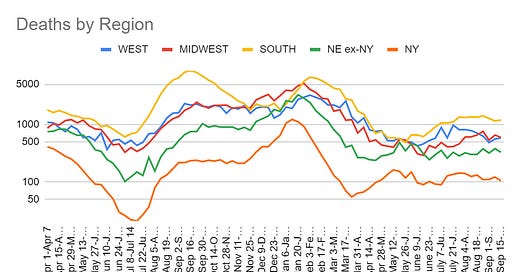





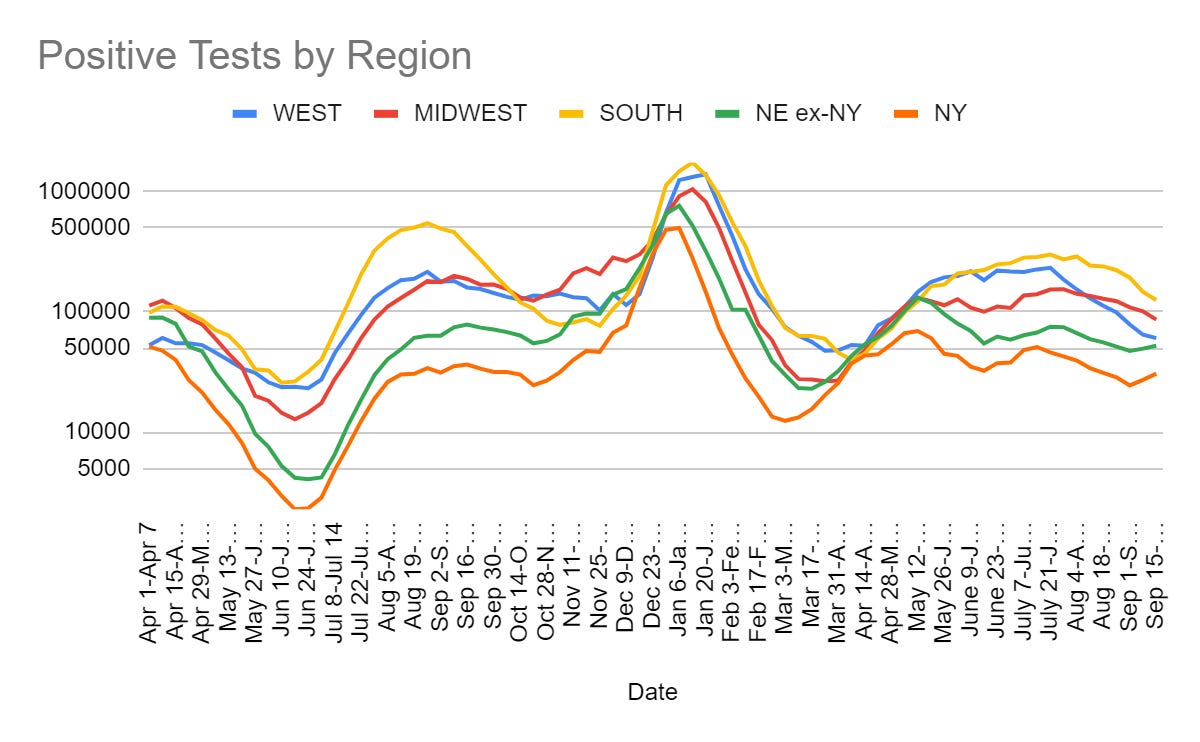
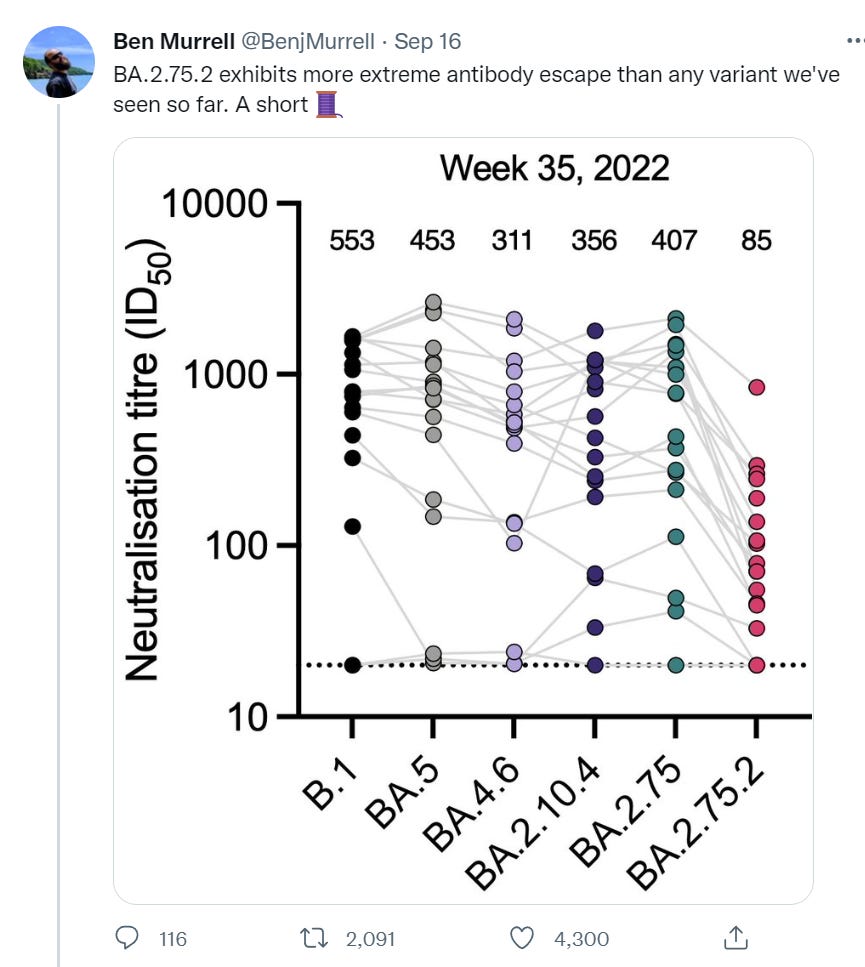
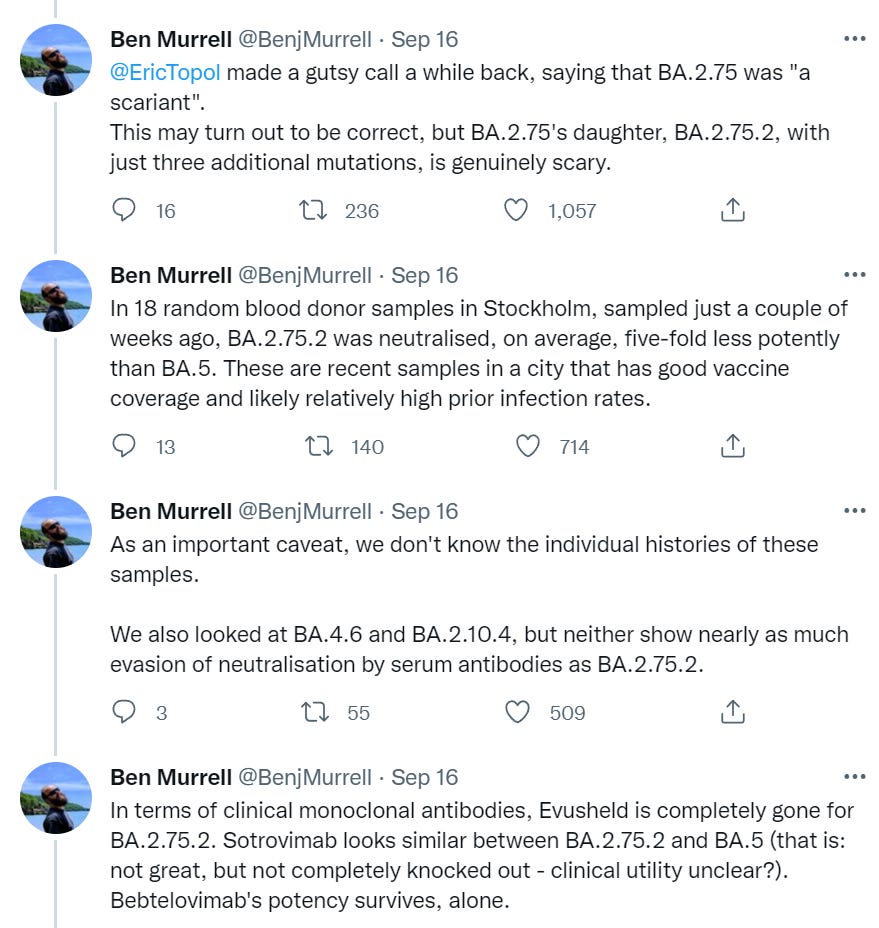
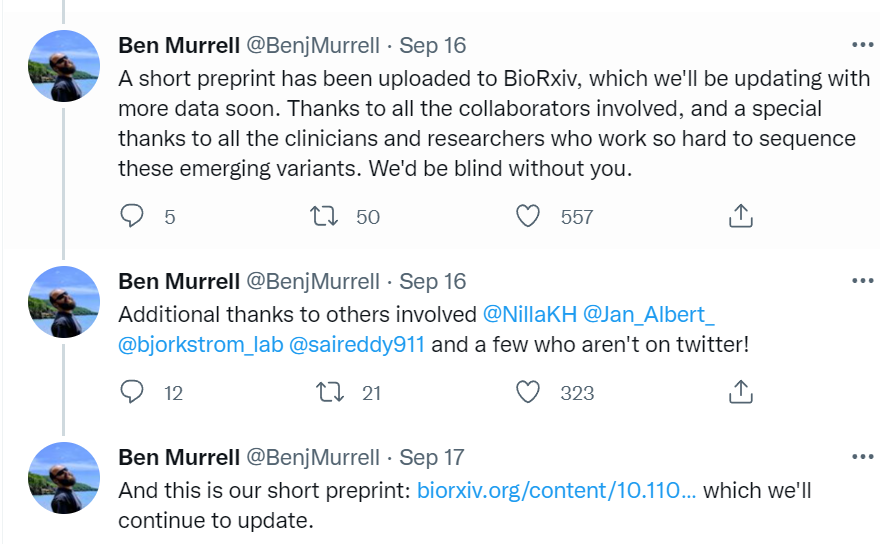



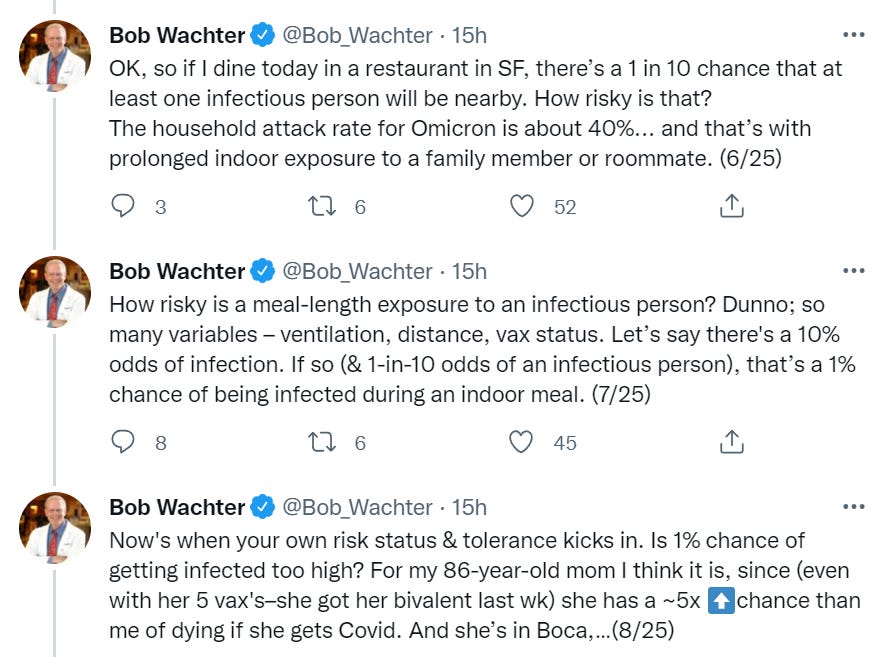
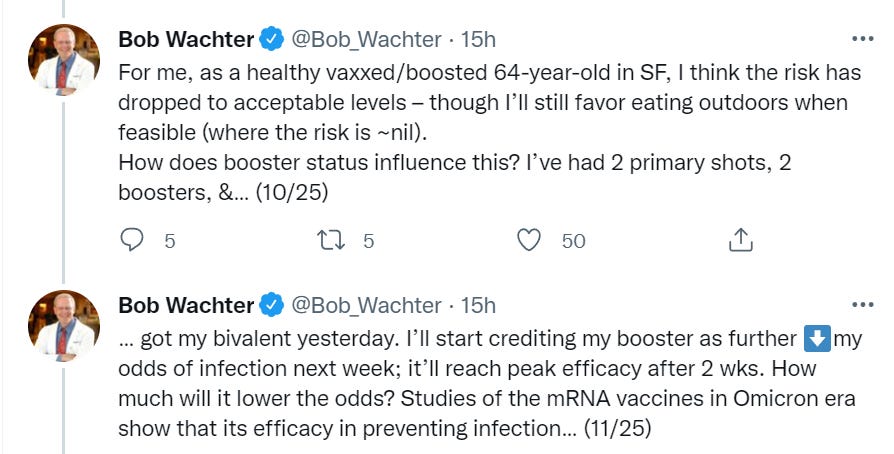
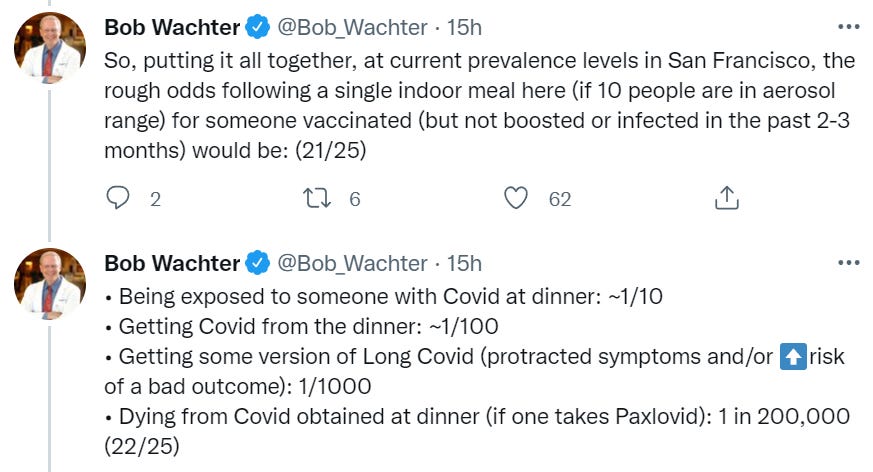
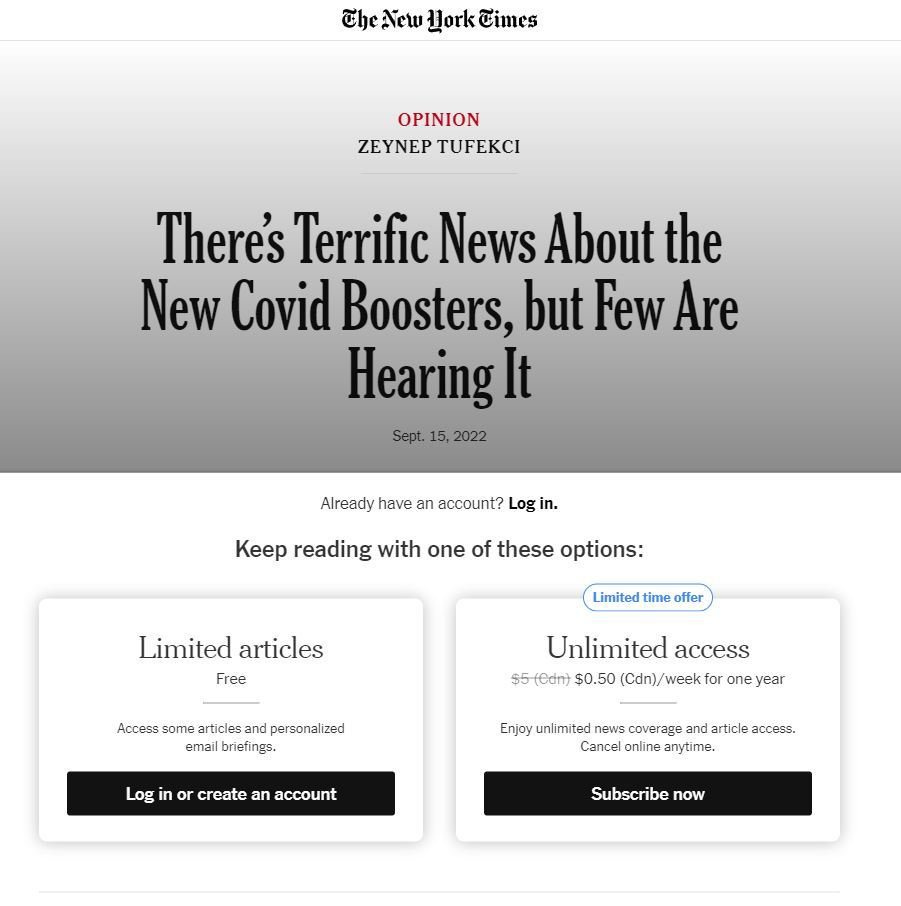
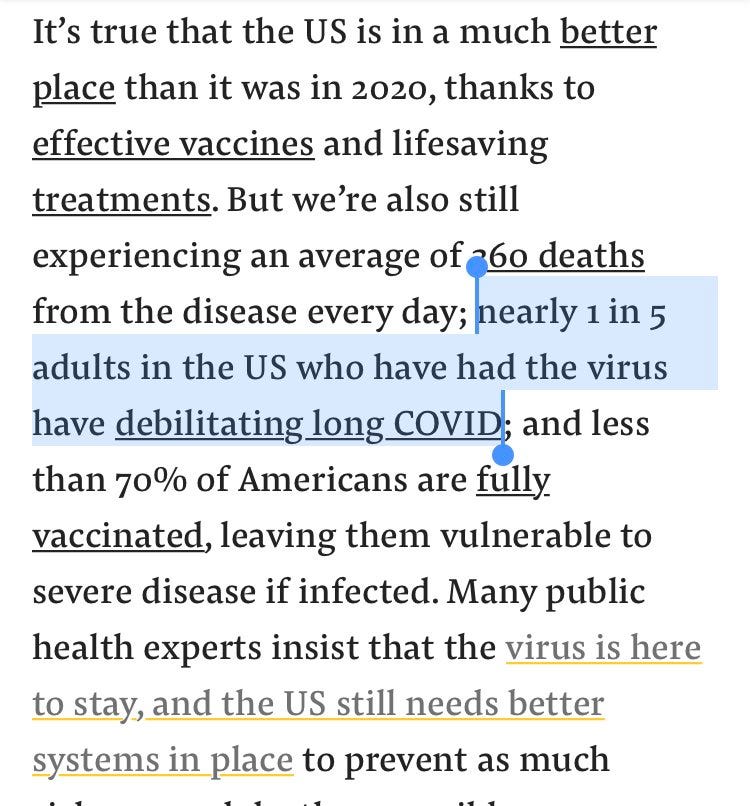
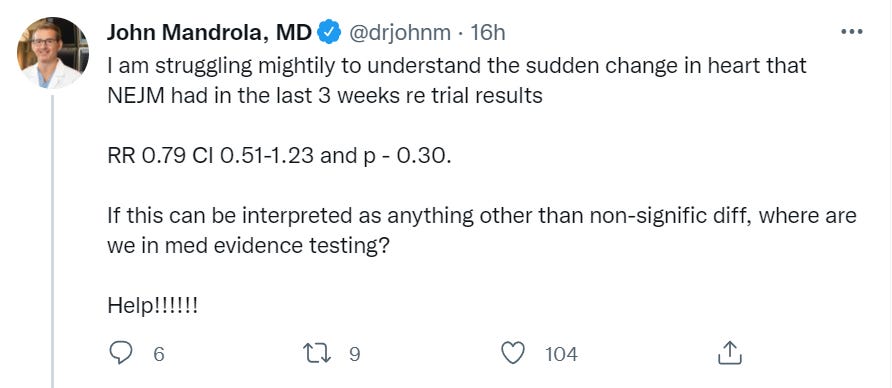
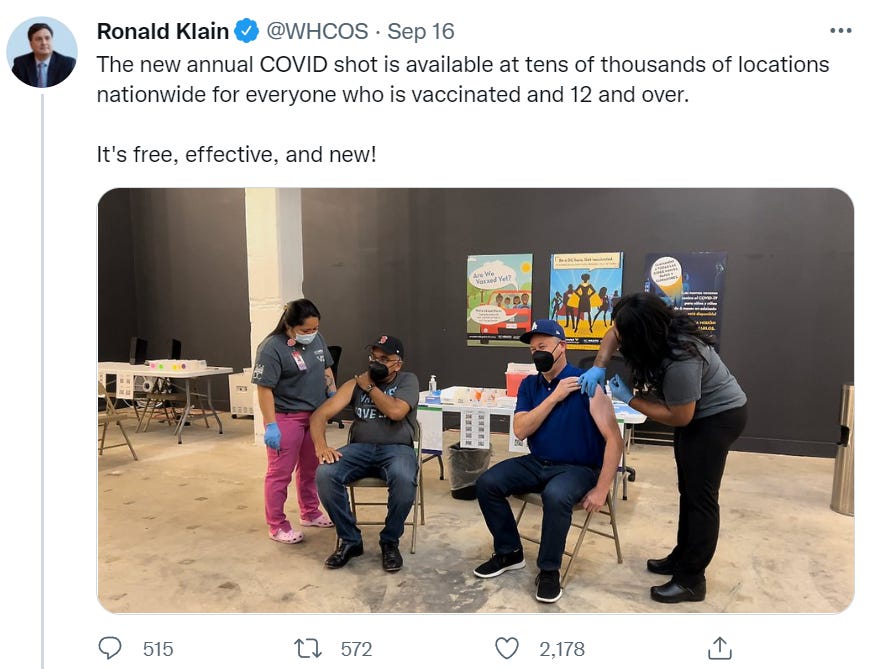
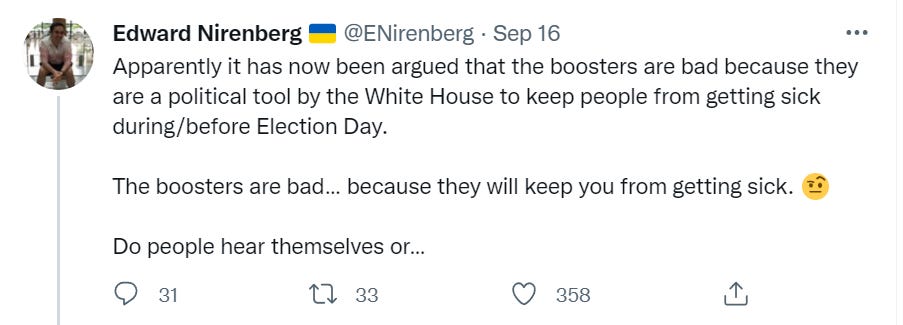
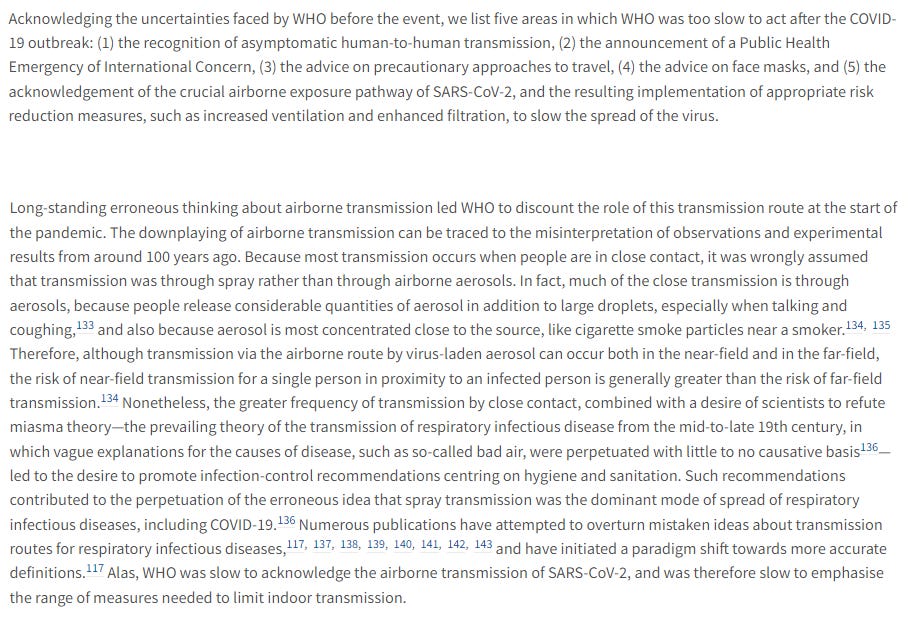

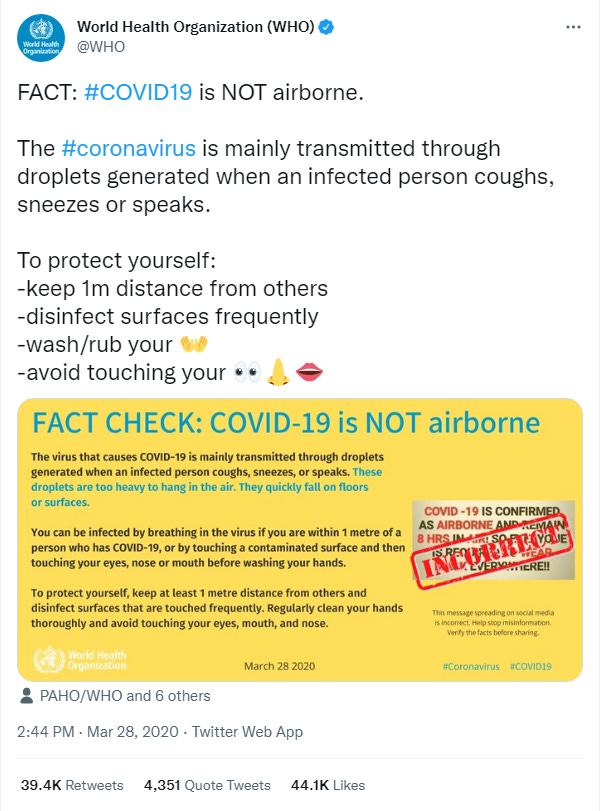

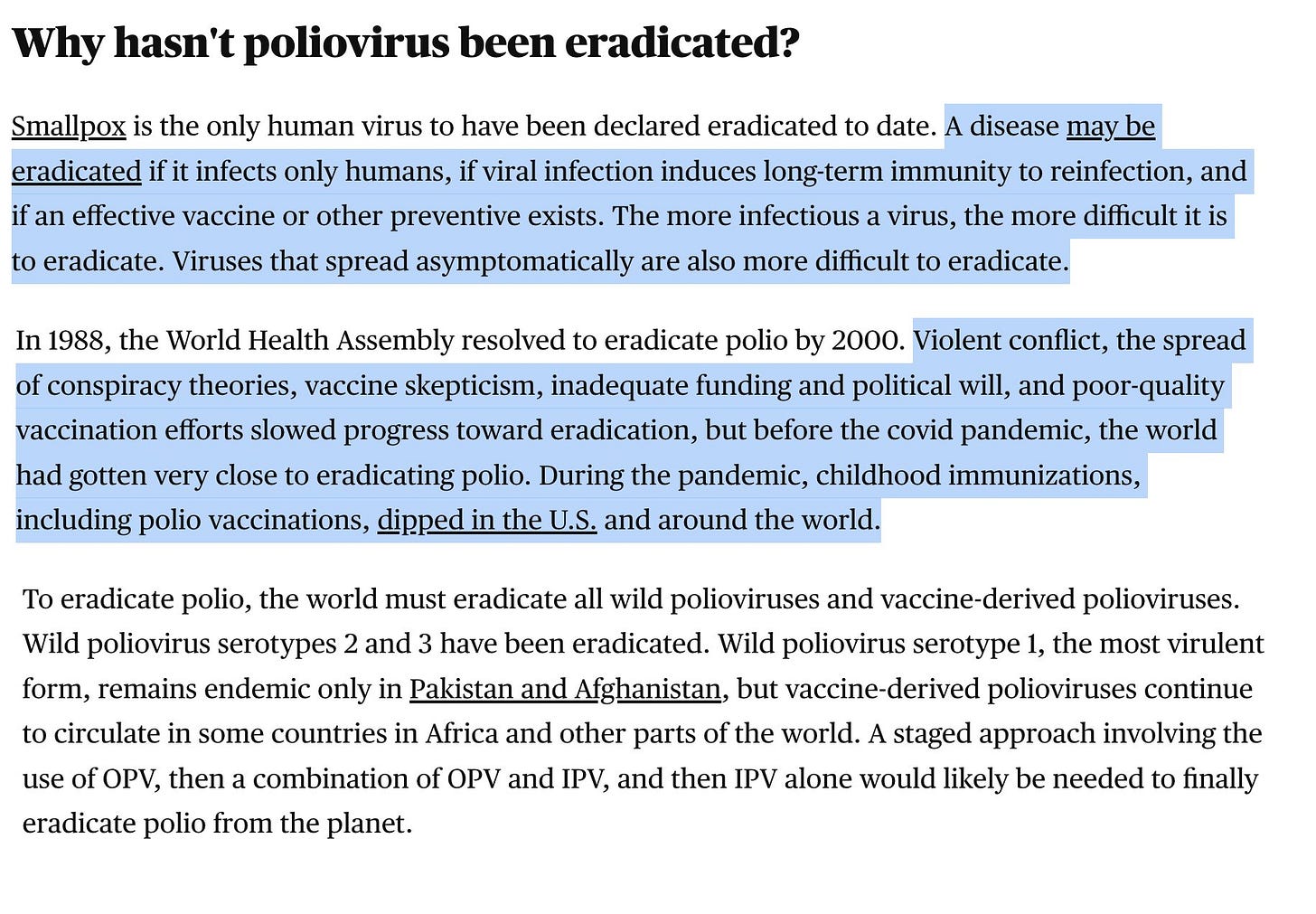

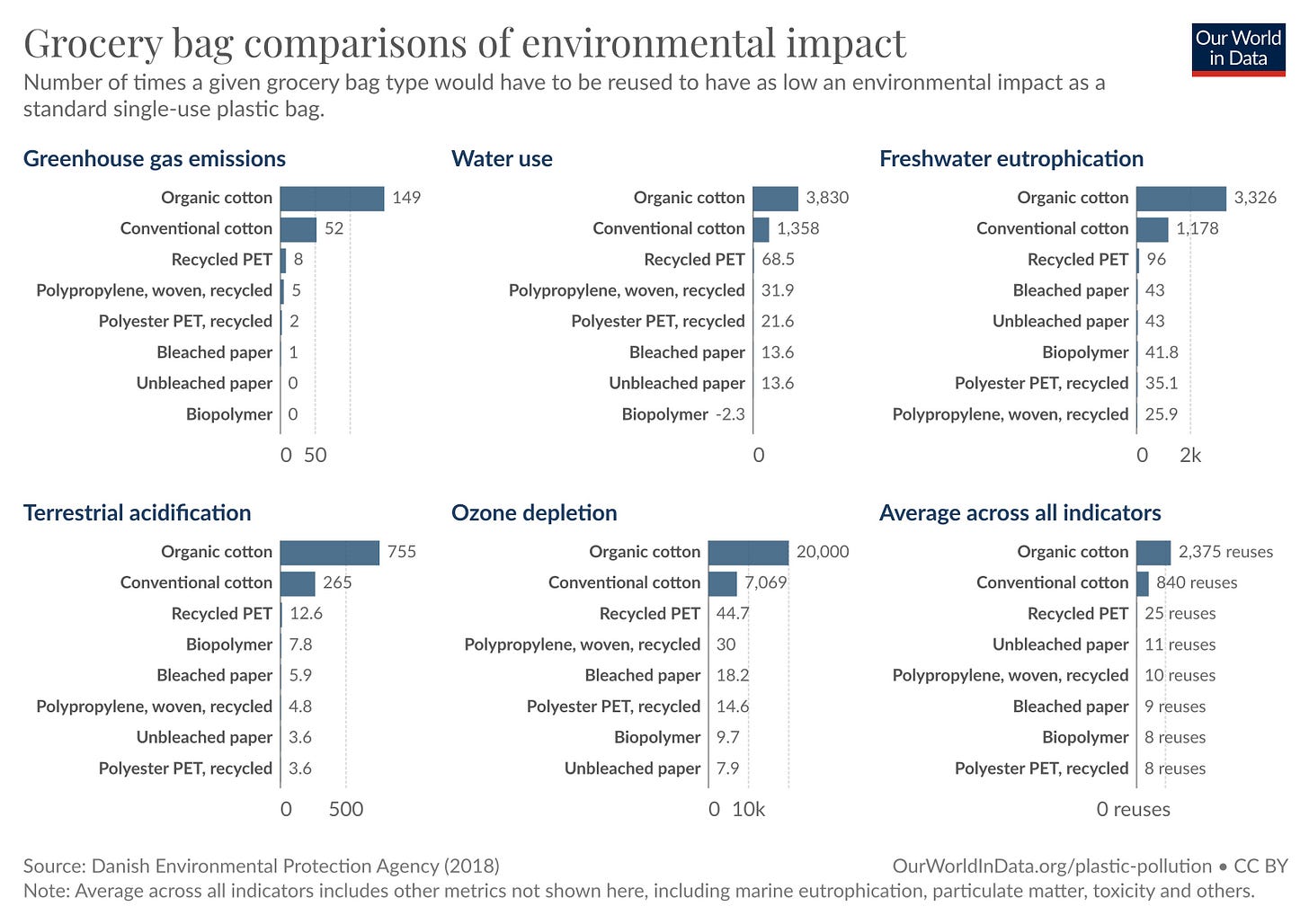
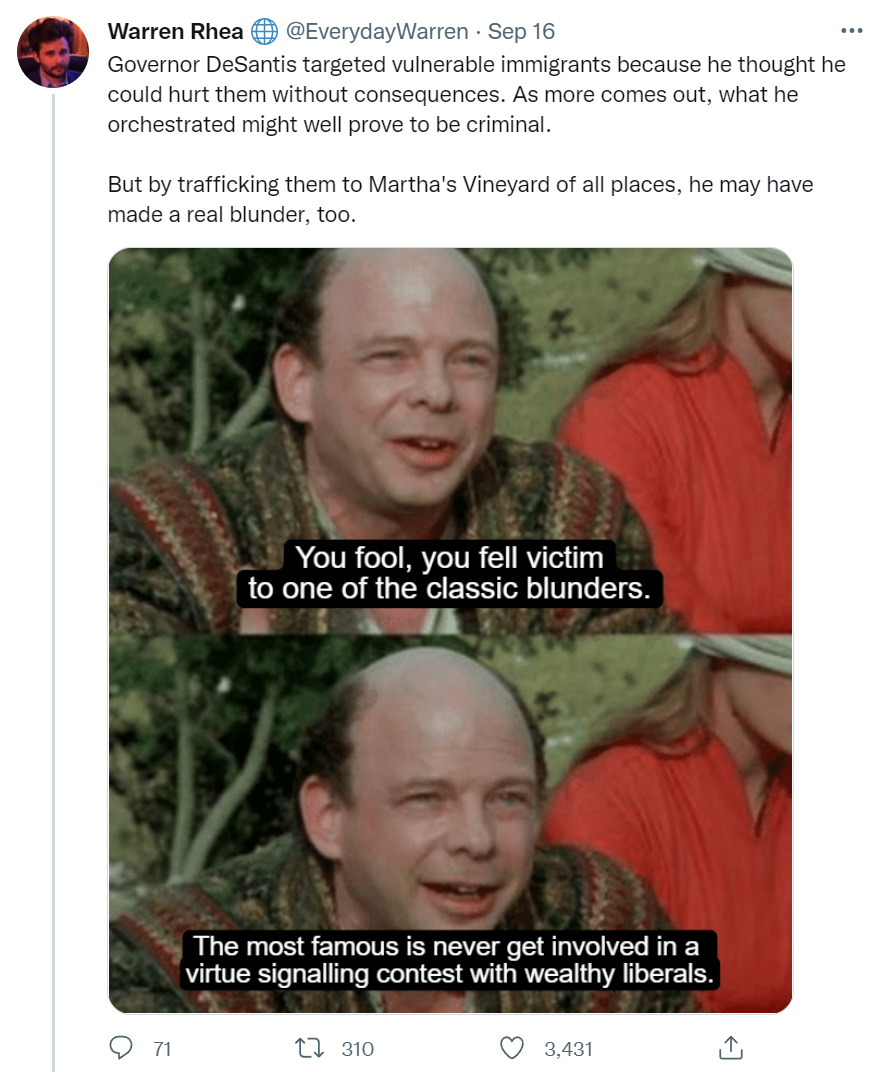
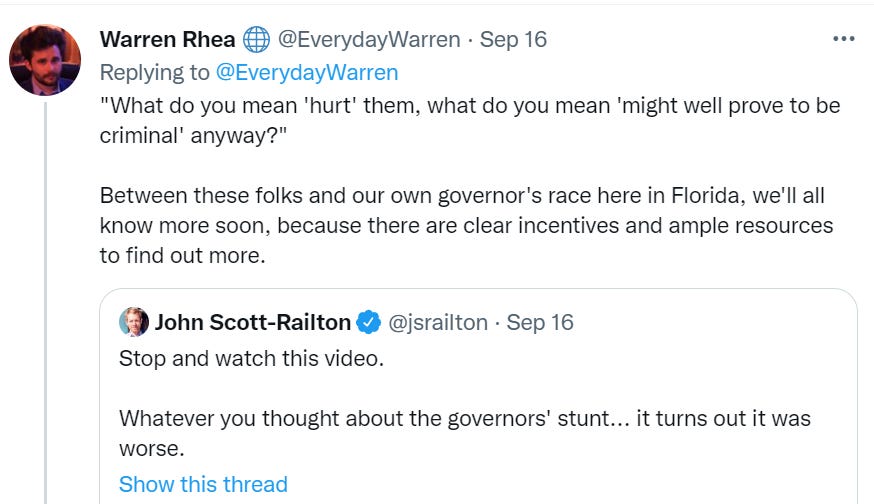


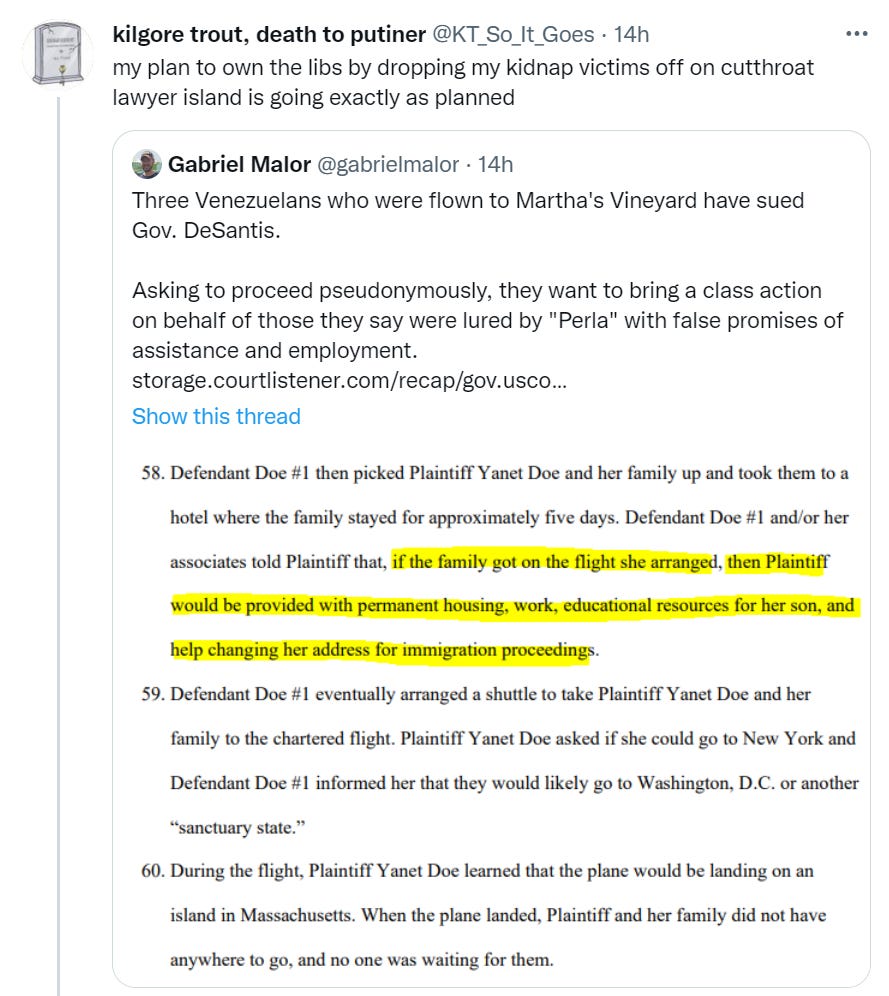
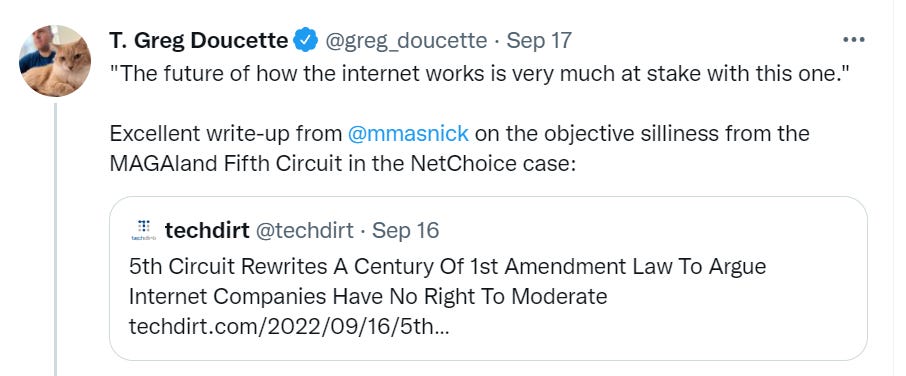

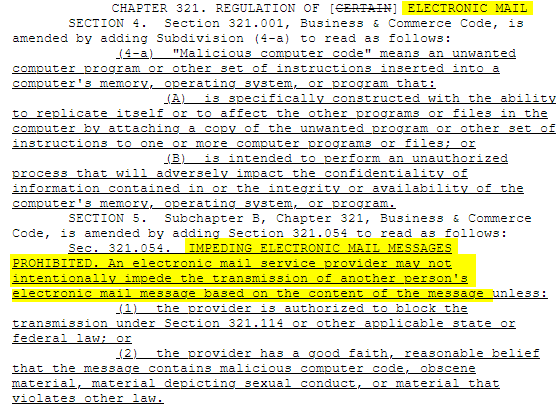

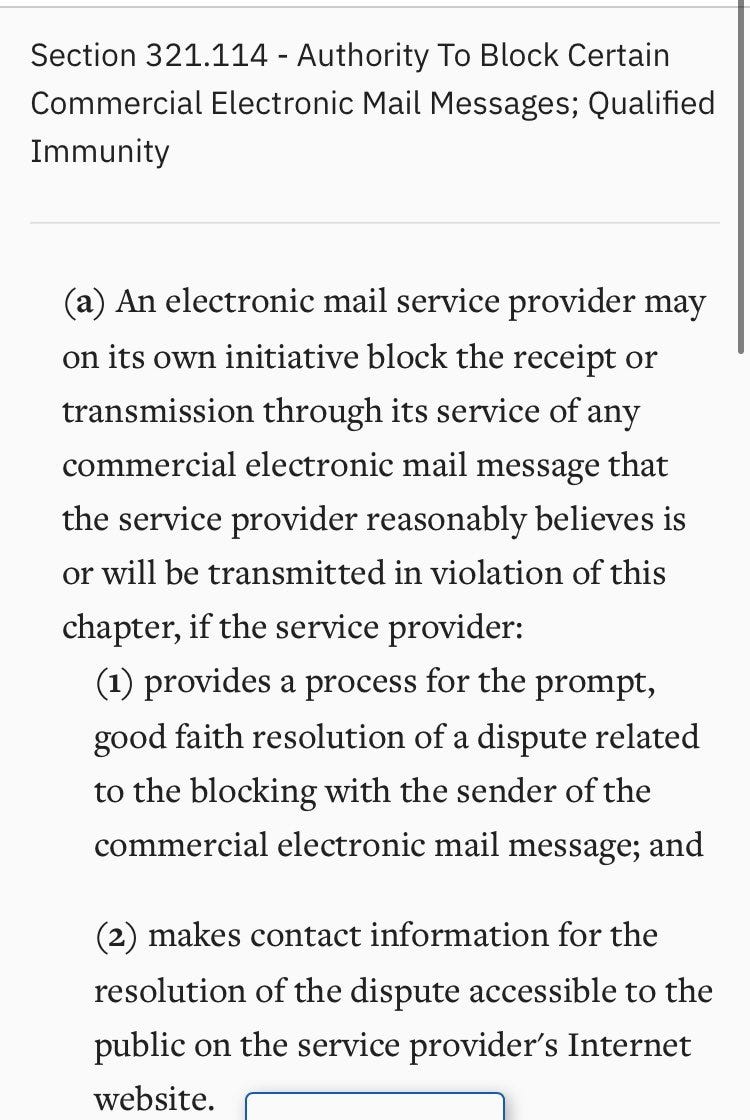
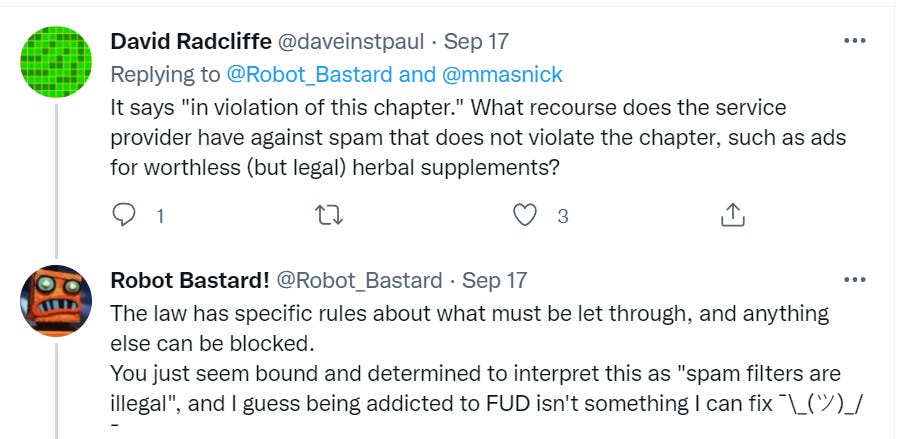



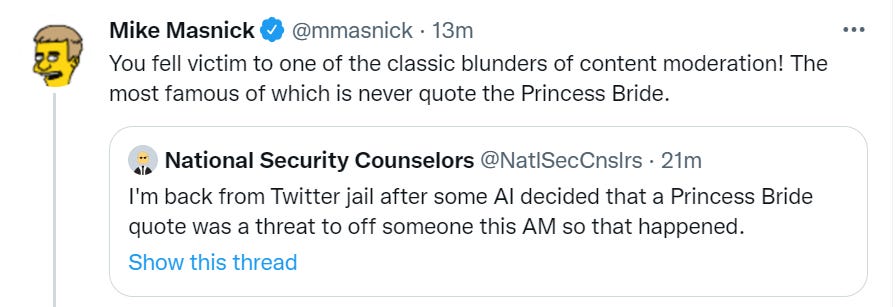


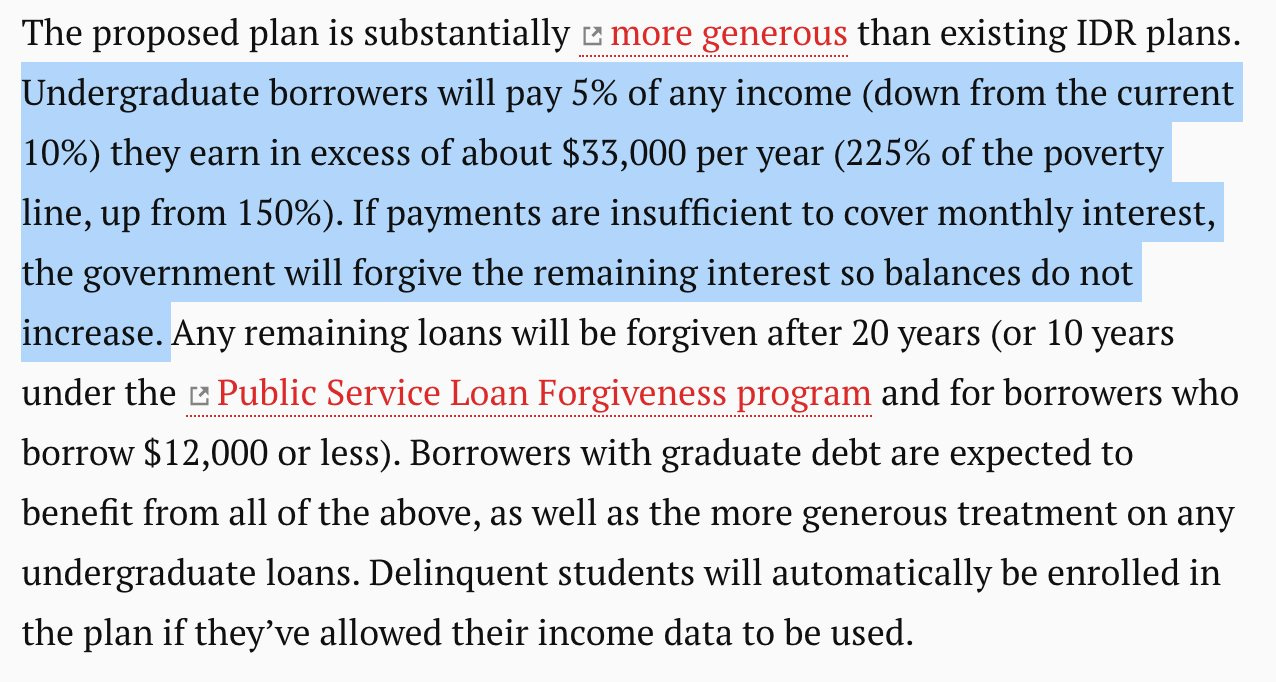
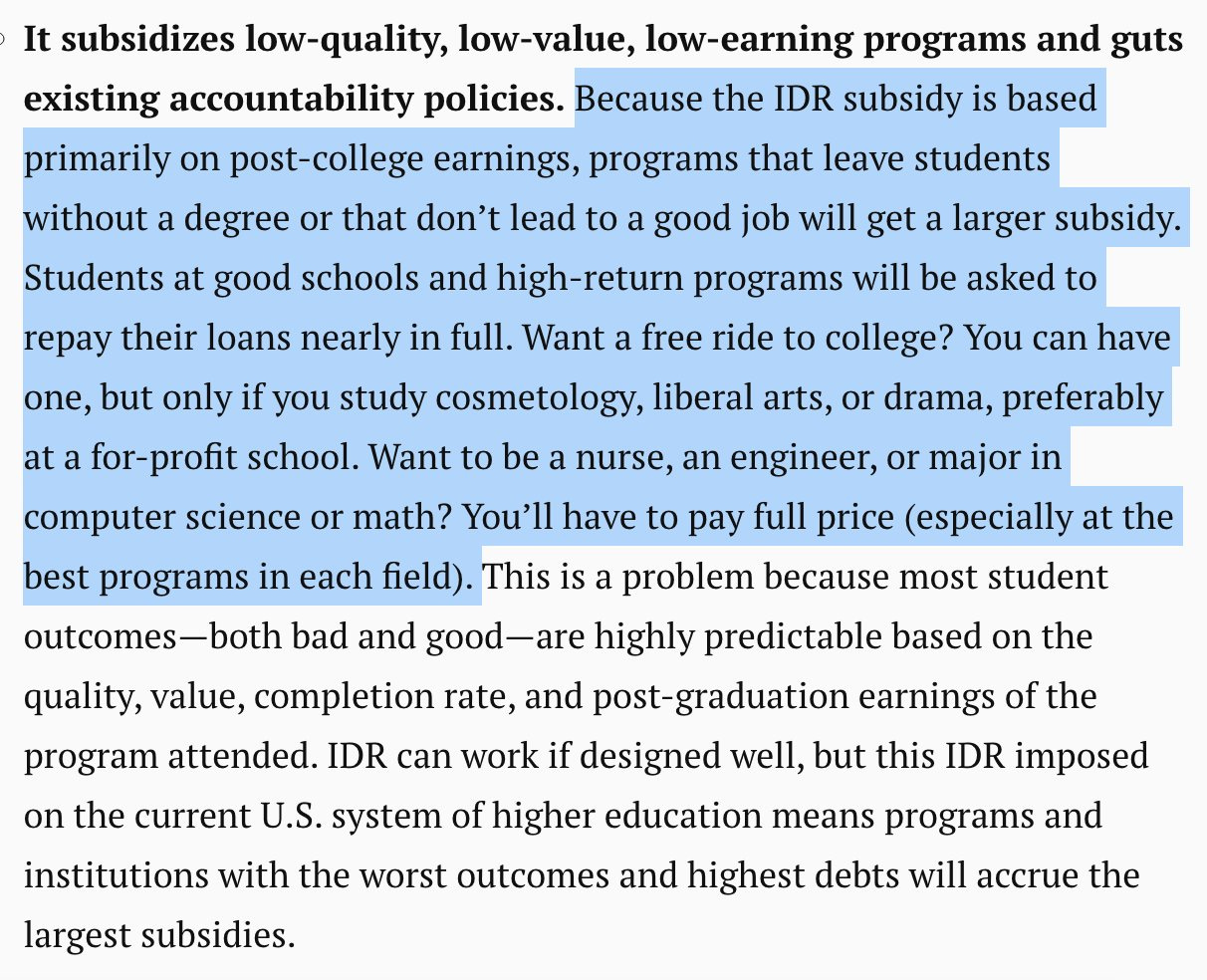
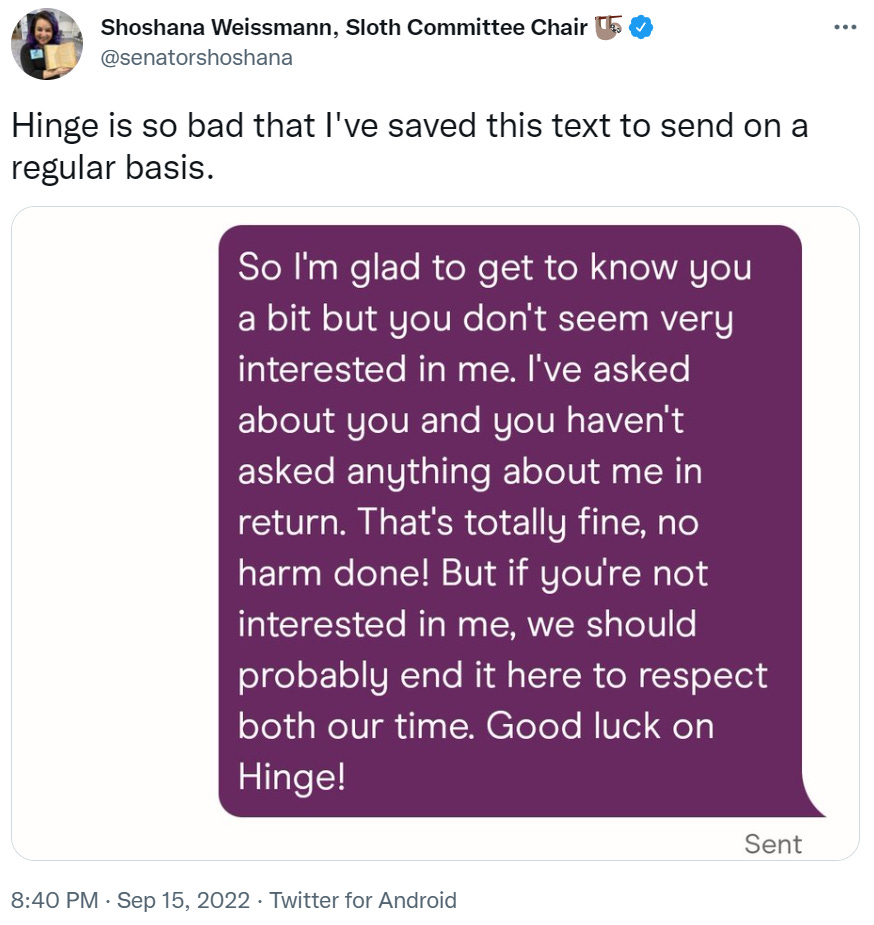
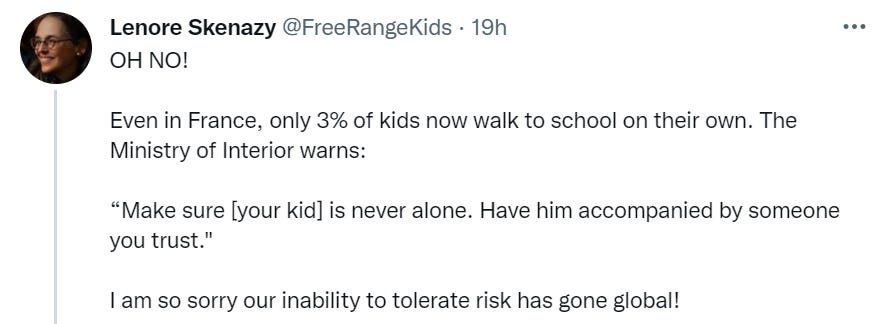


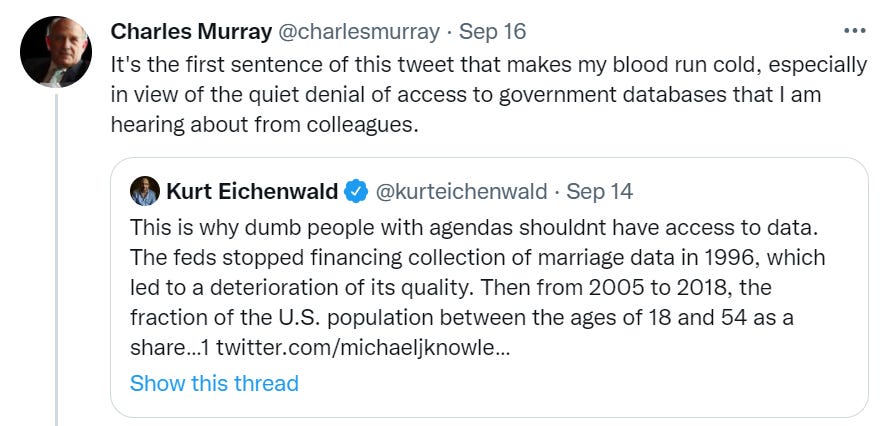
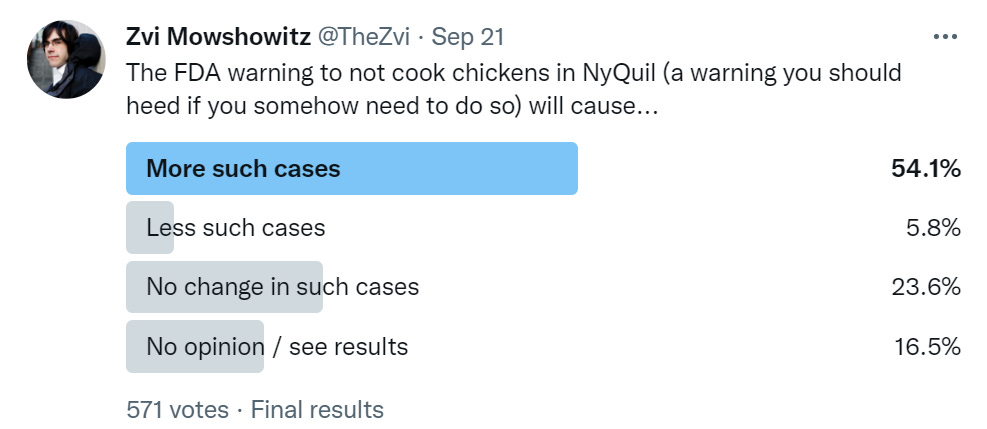
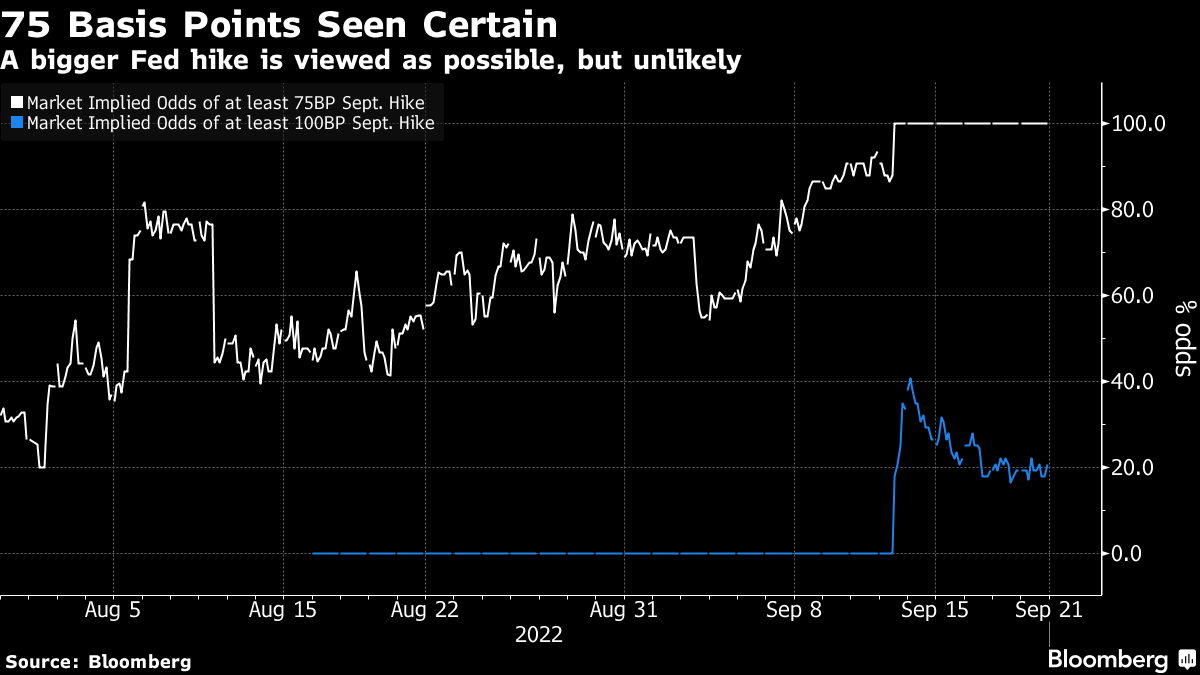


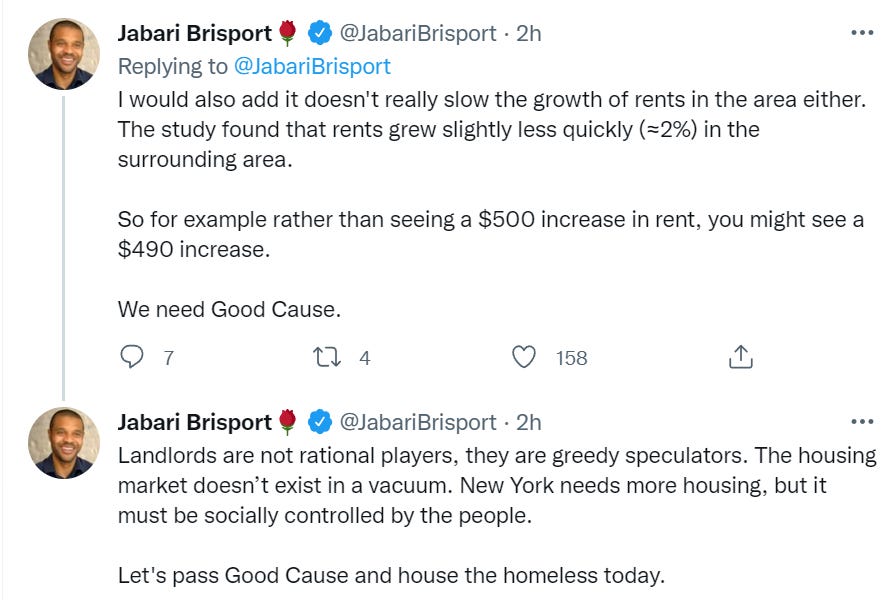
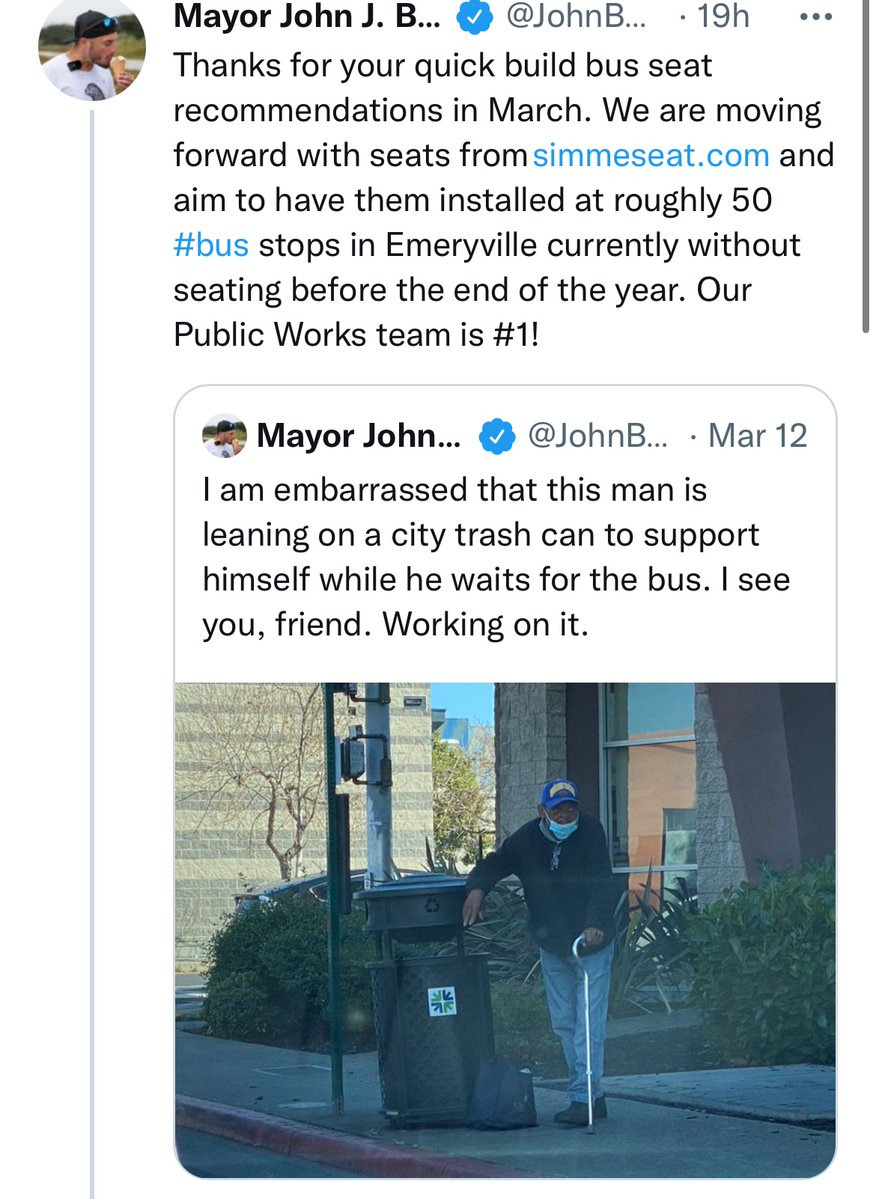
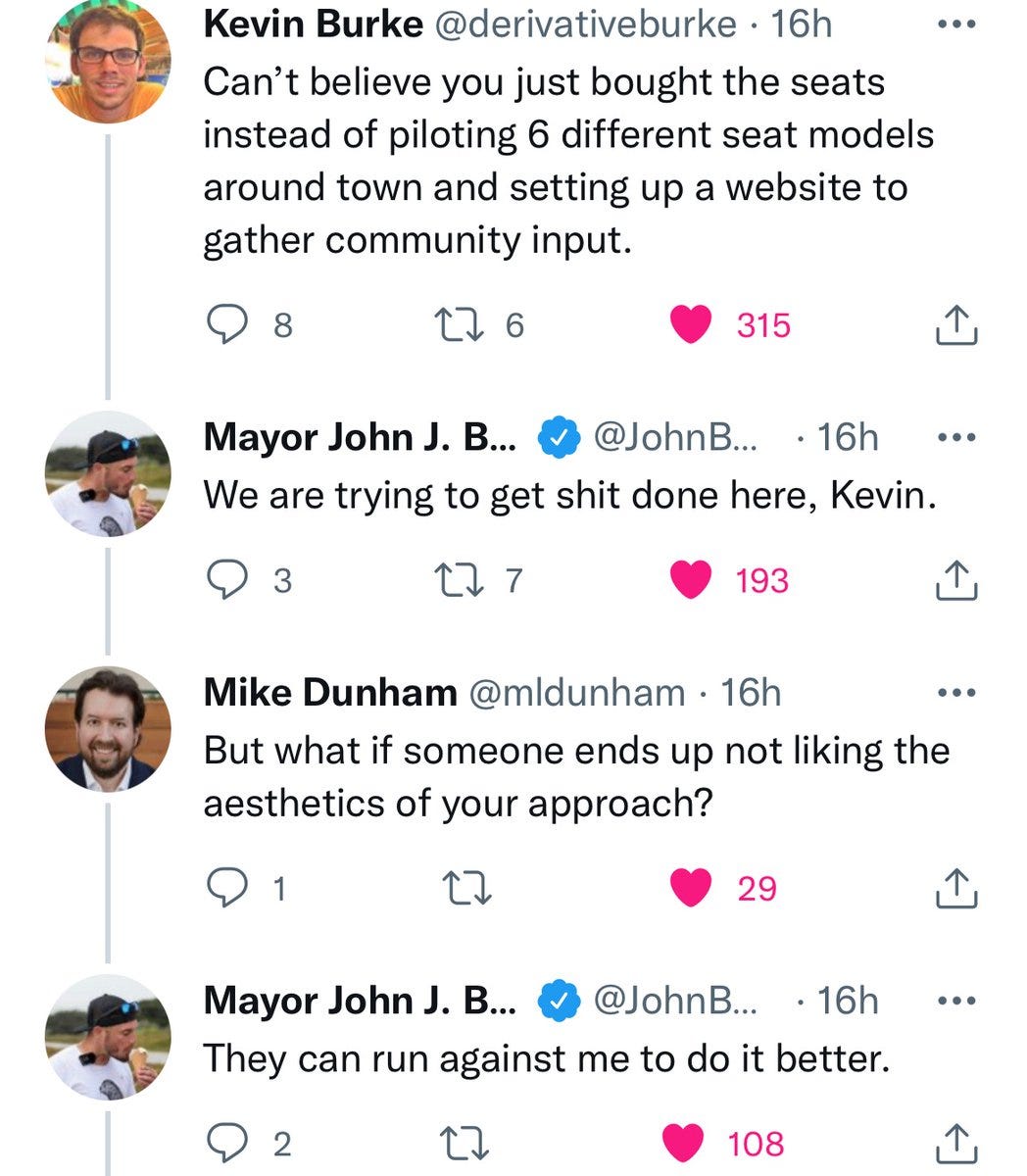

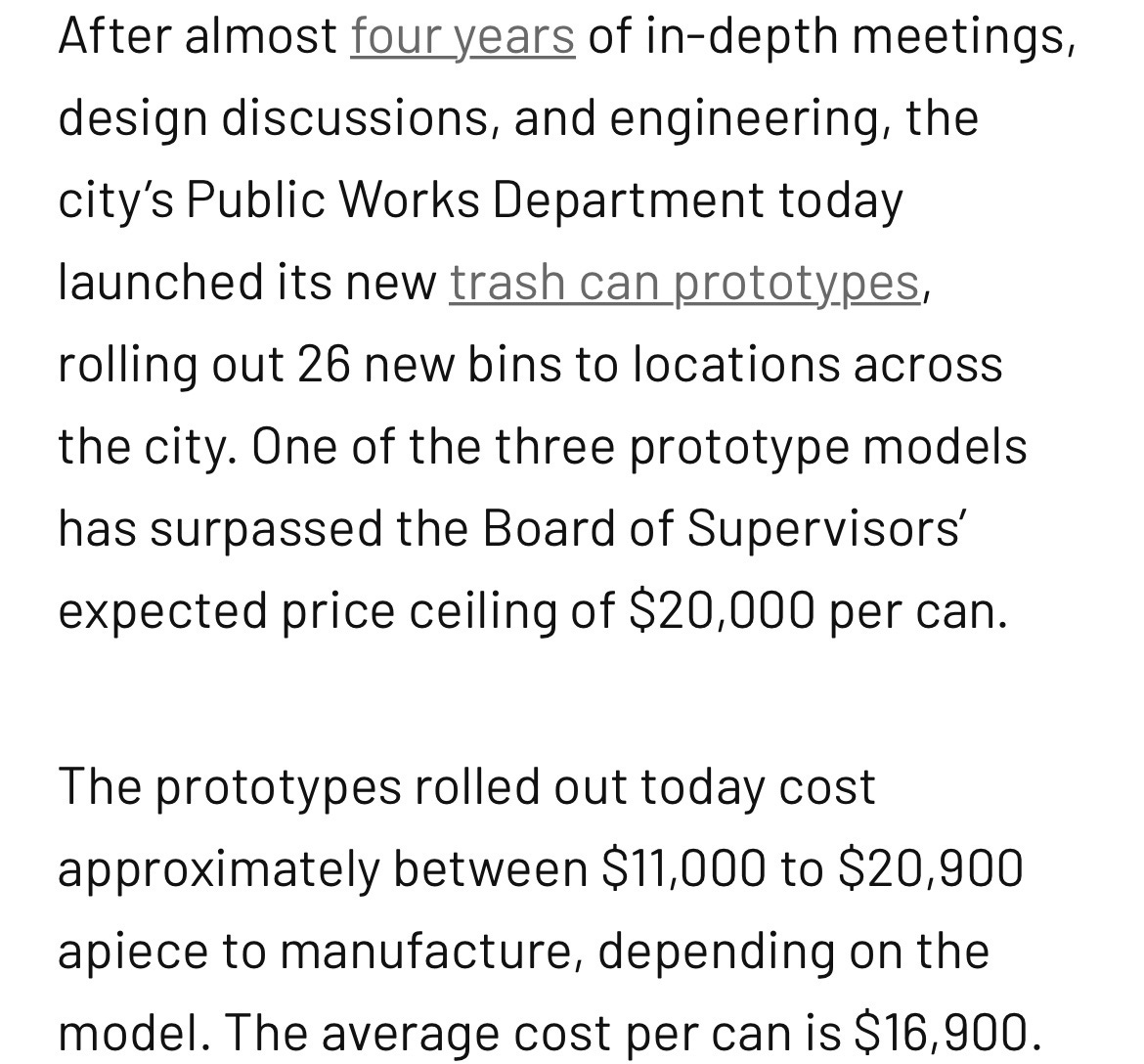
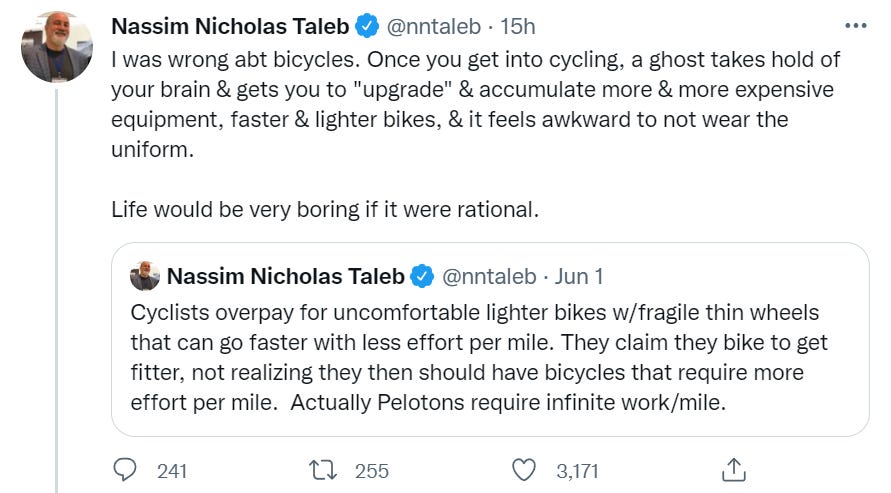
I agree with your take on the likely outcome of the FDA's warning about Nyquil Chicken, but haven't we spent a whole lot of the pandemic wishing that the FDA and CDC wouldn't tailor their messages based on how they _think_ people will respond?
I mean, my critique would probably be "this is completely trivial, why are you wasting time on it", but _if_ they decide it's worth their time, then I'd rather they completely avoid any consideration of the public's response to what they say. They have proven to be totally inept in that regard.
Now feels like a good time to thank you again for this whole series. Every week for quite some time you've been keeping us up-to-date with all the stuff happening with COVID, and a lot of stuff besides. Rationalist bloggers have mostly dropped COVID awhile back, and it's been nice to check in every Thursday for all this data and good rationalist ways of looking at it.
"Trying to dig out from minus a million points" - I think it might be time to add a point to your score ;)